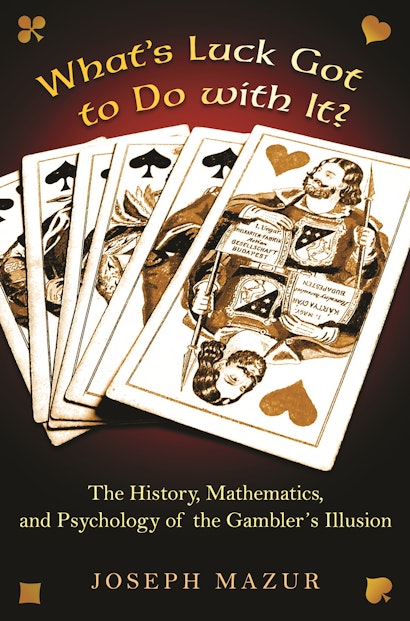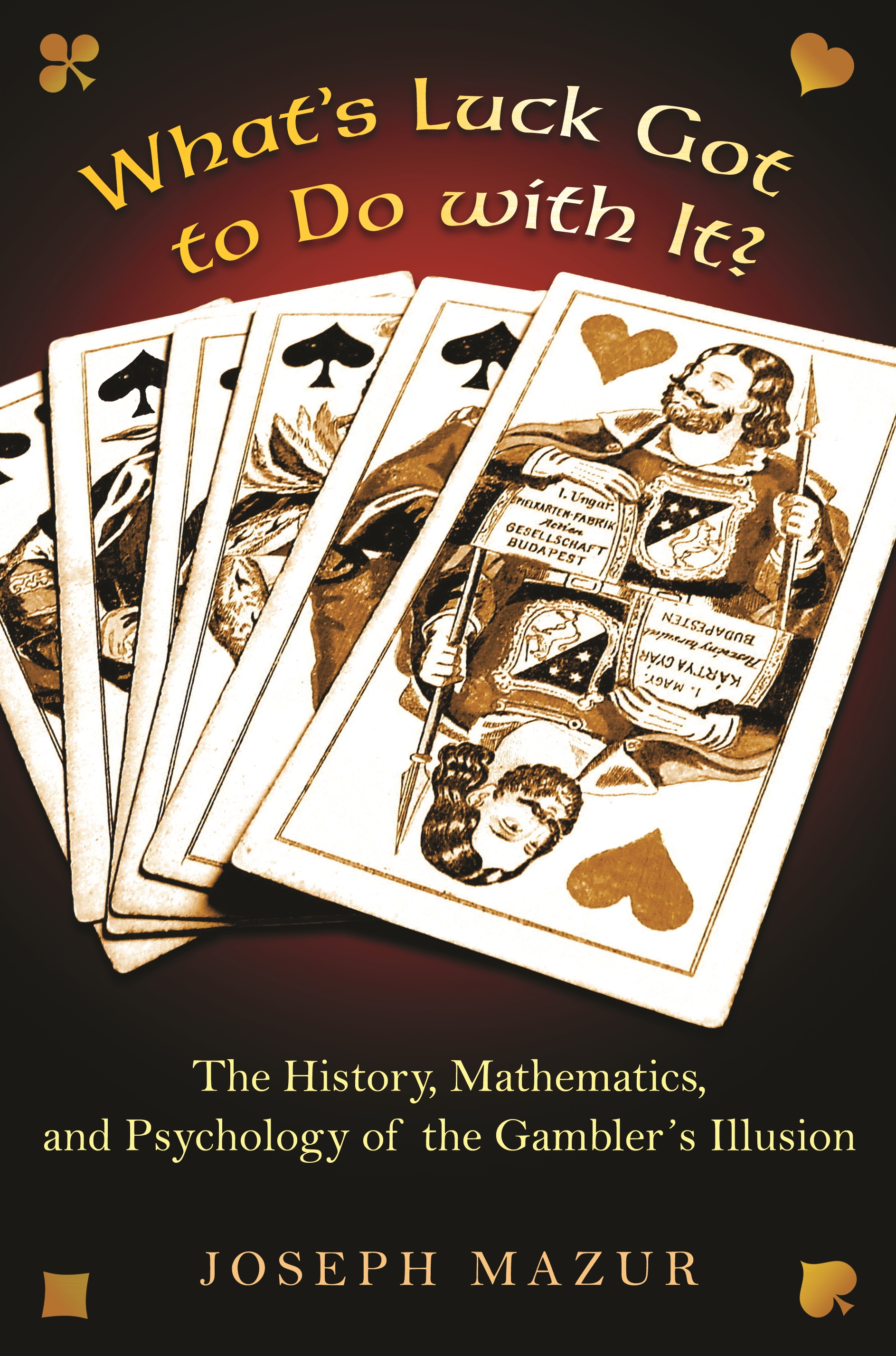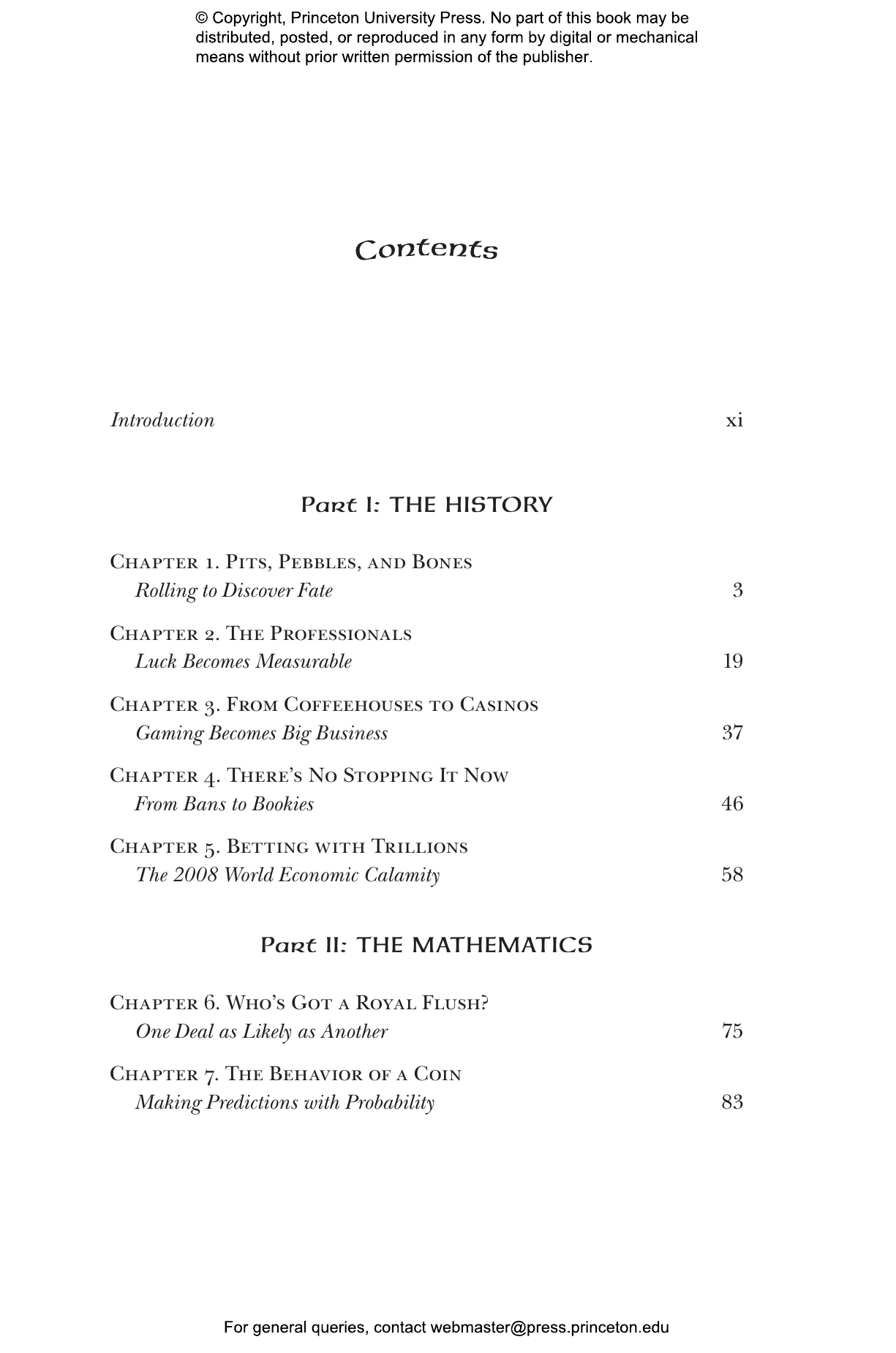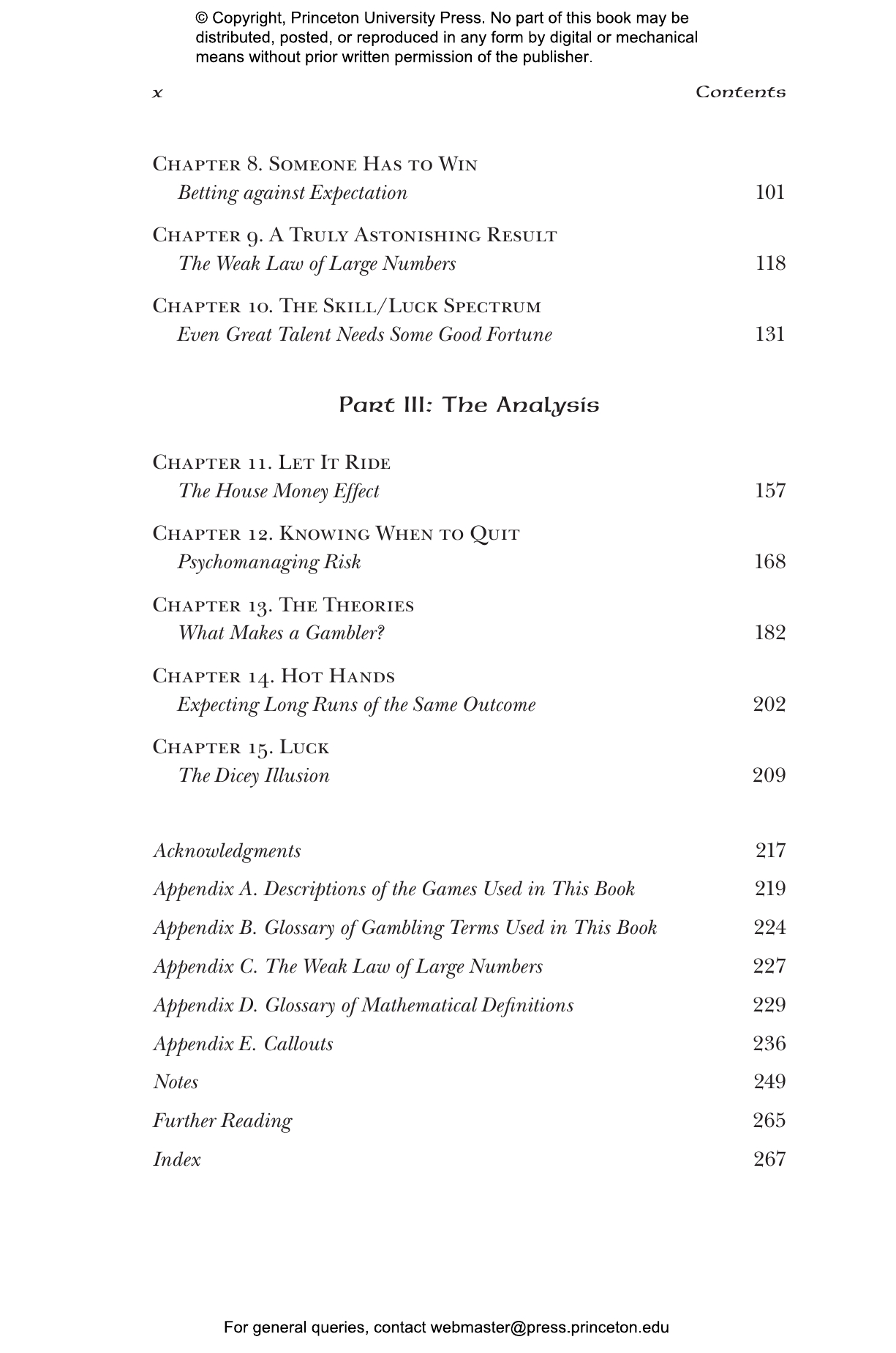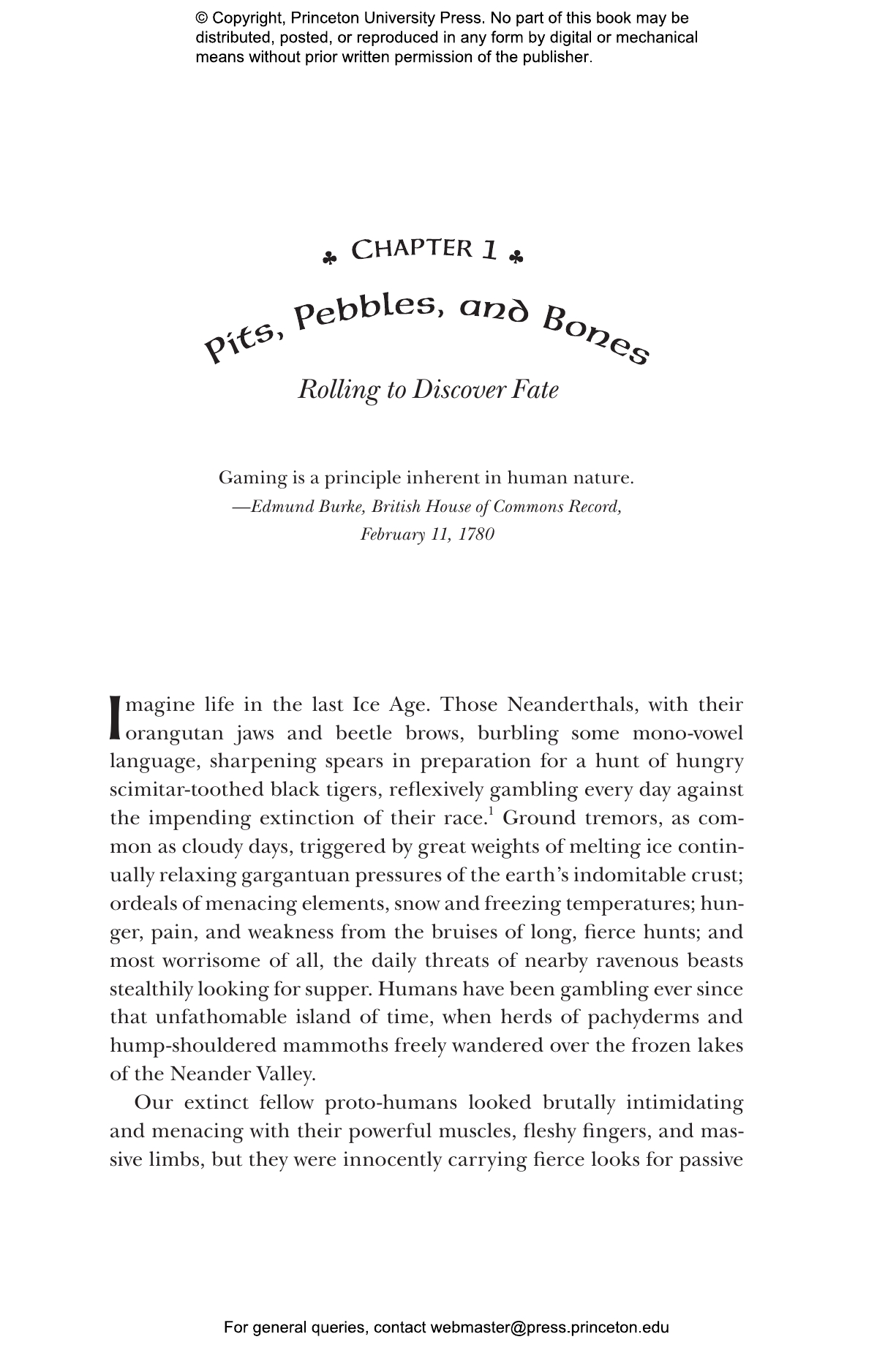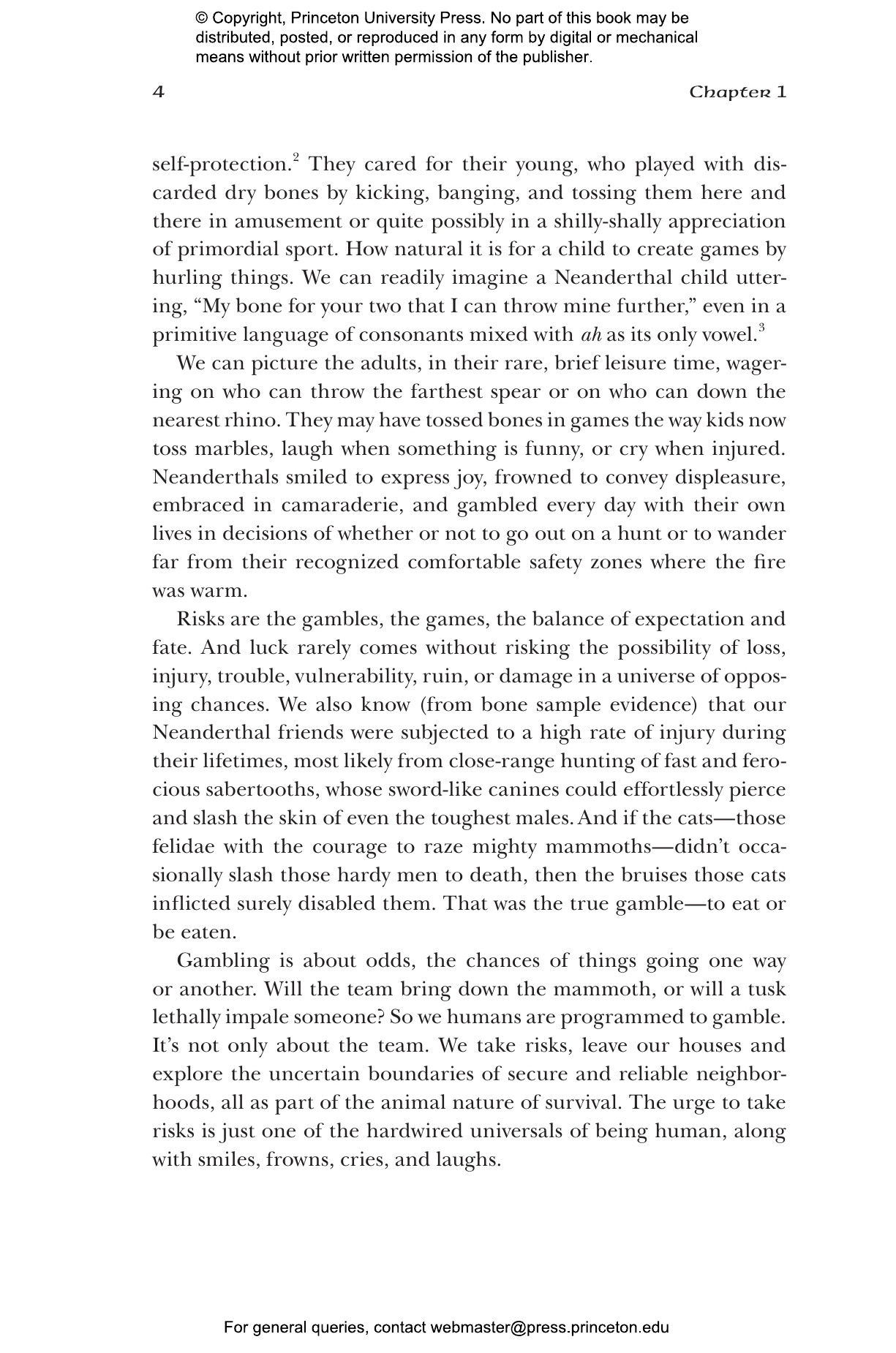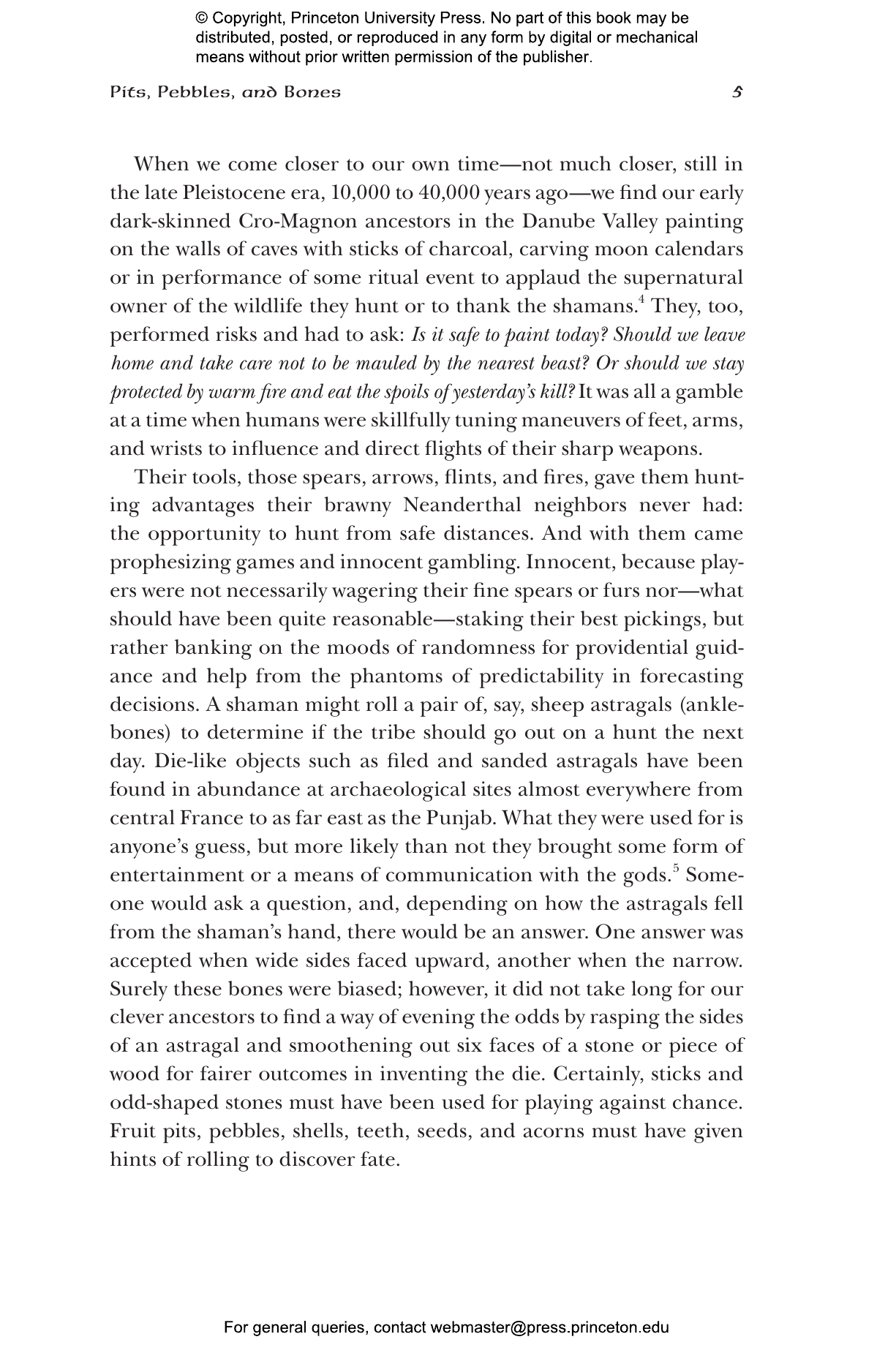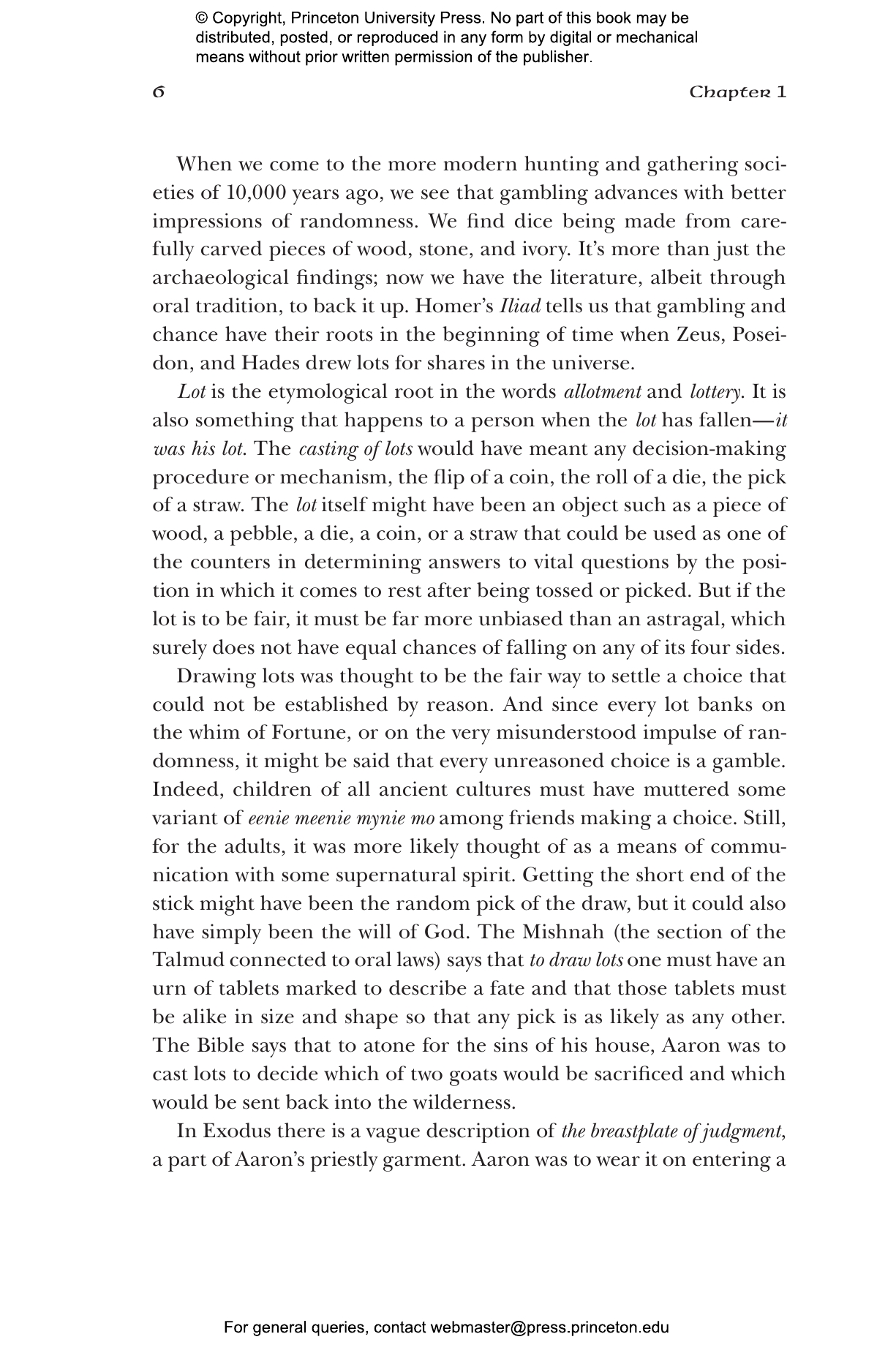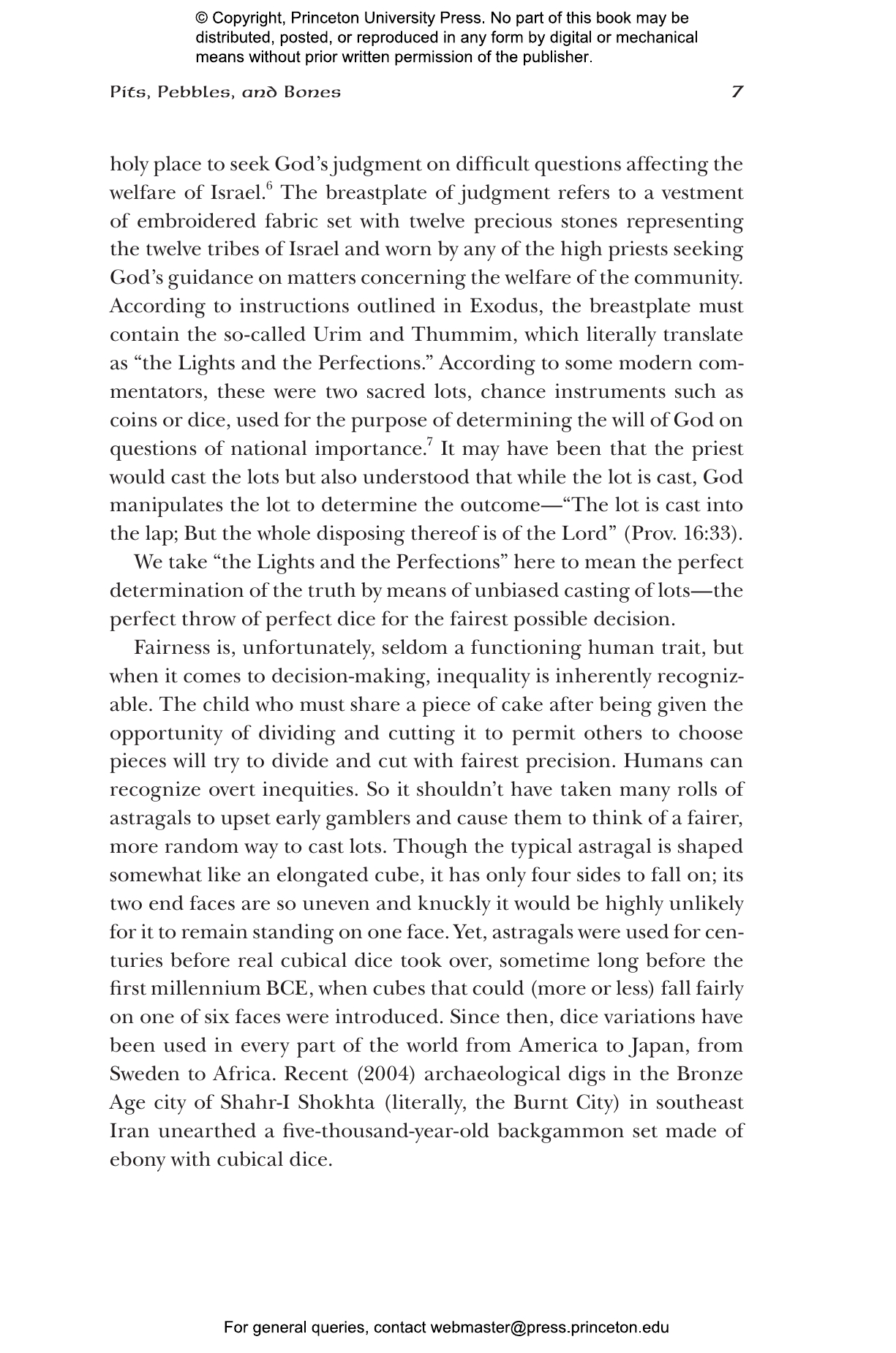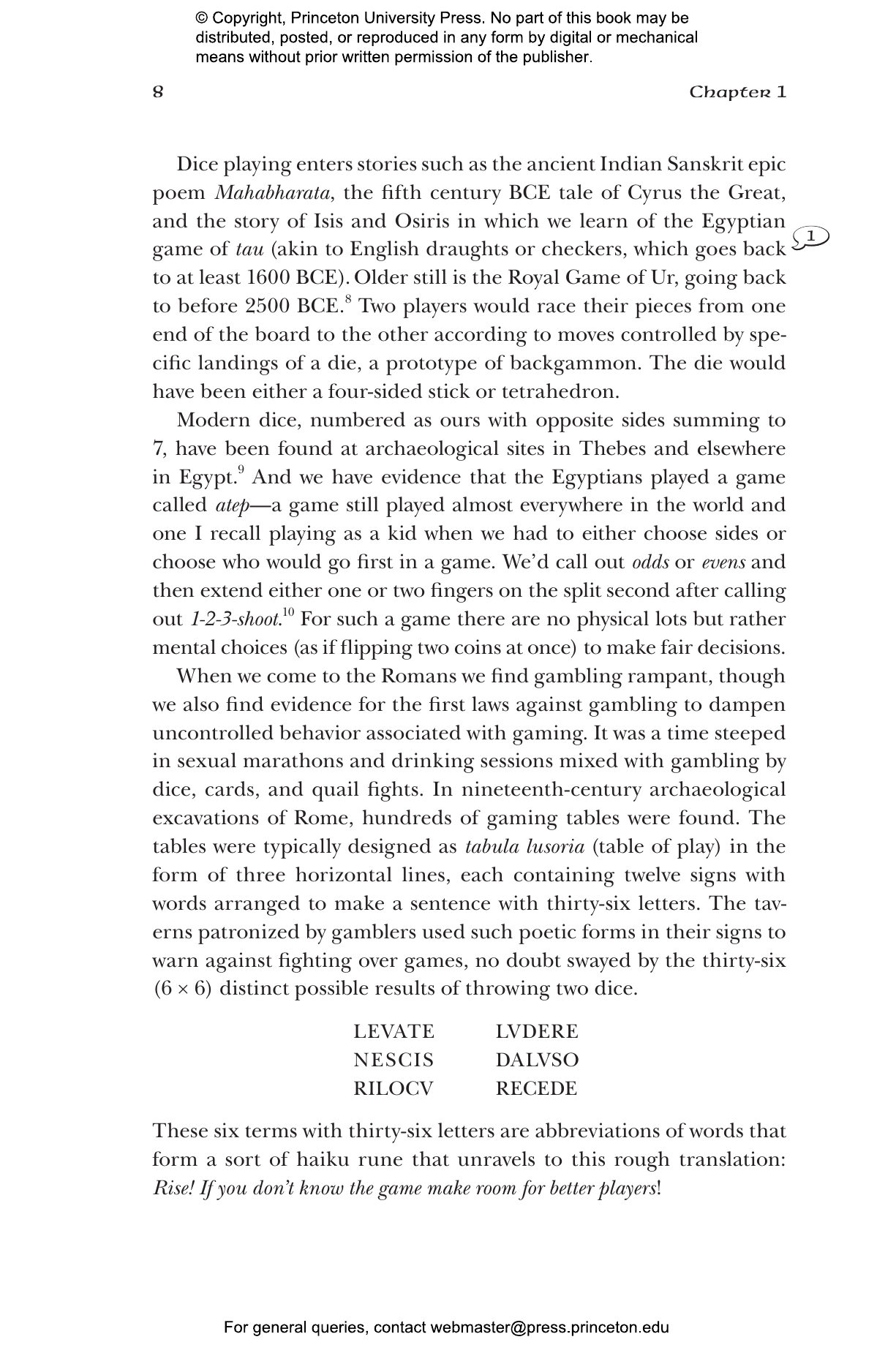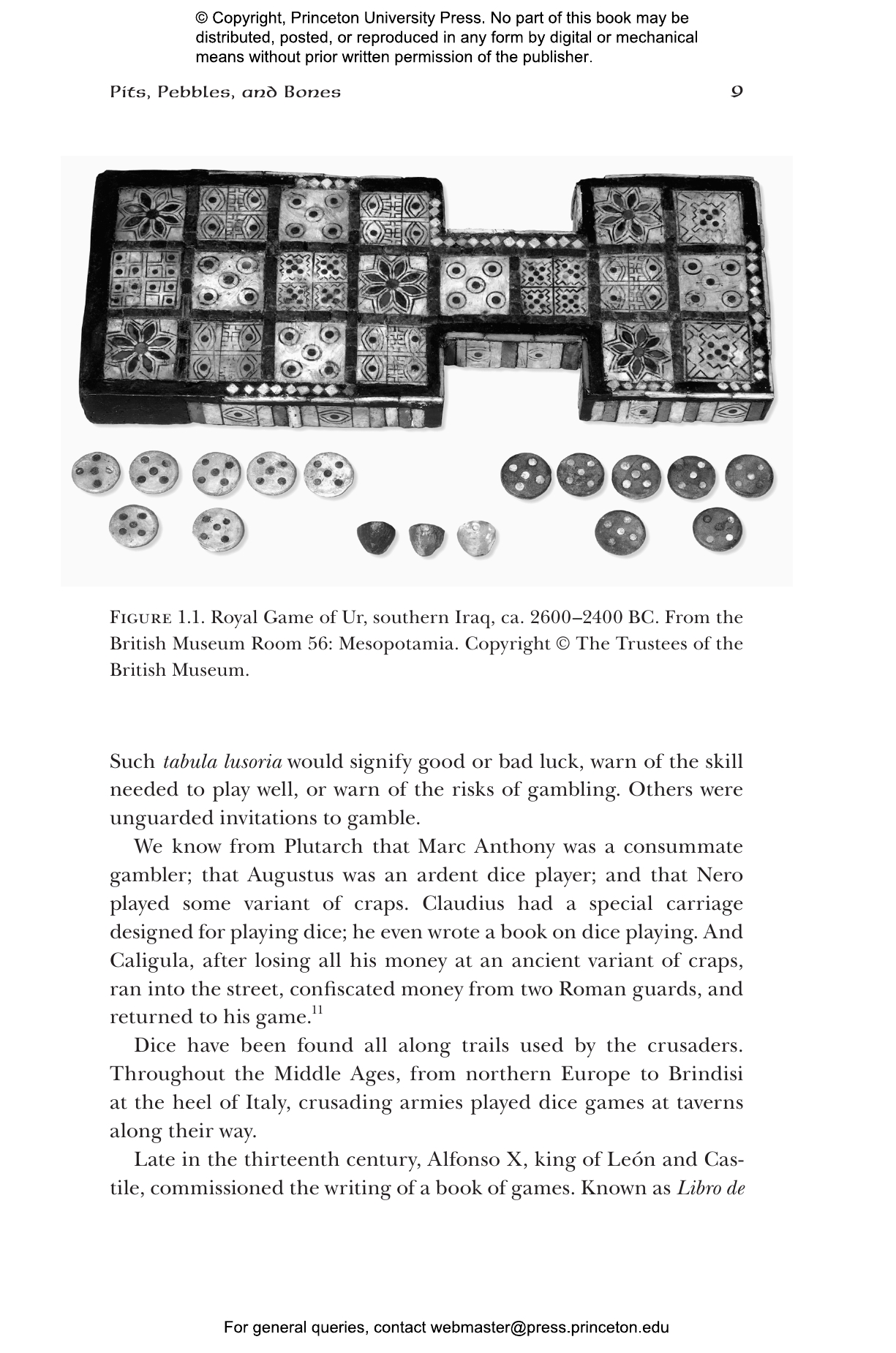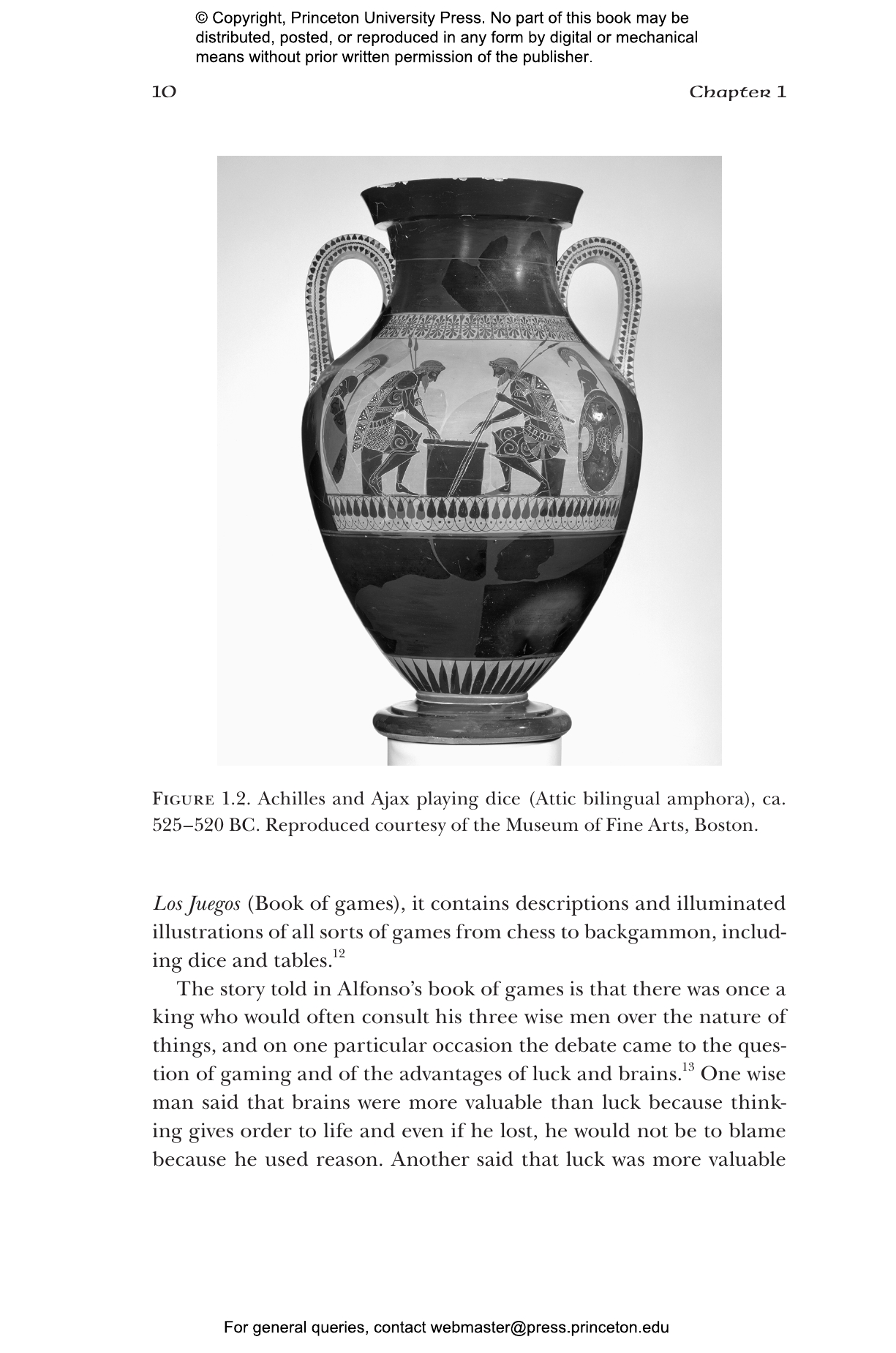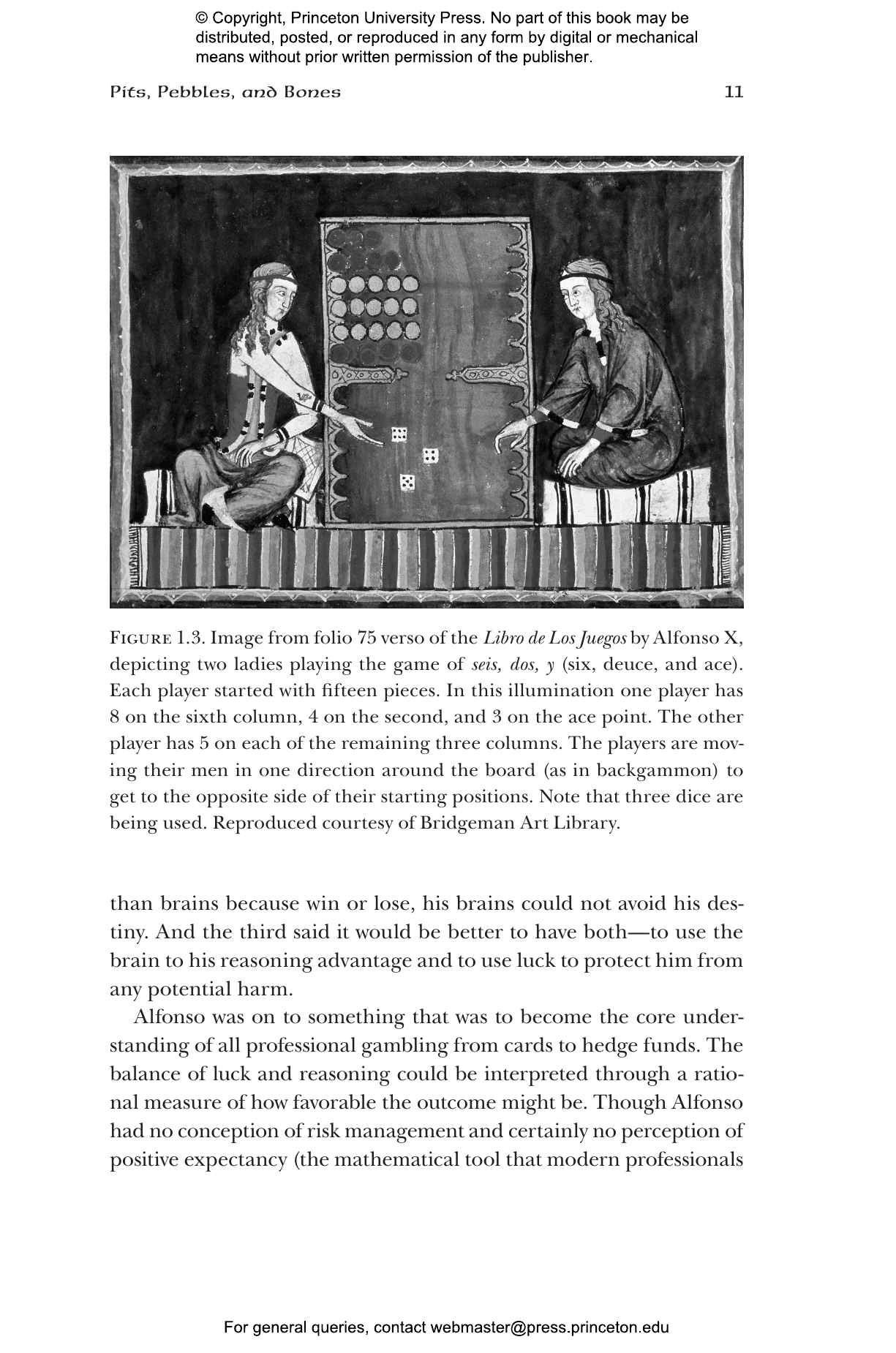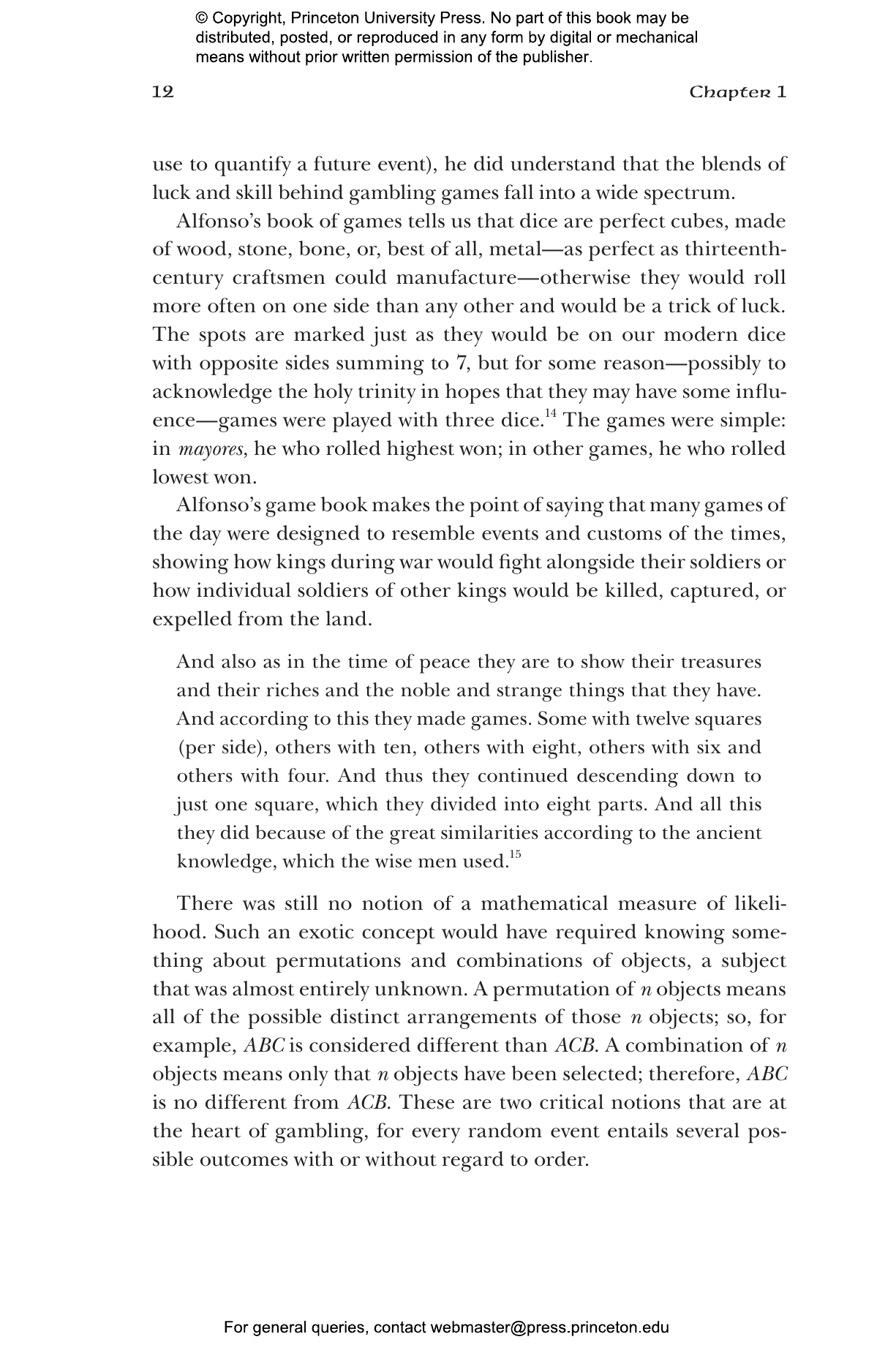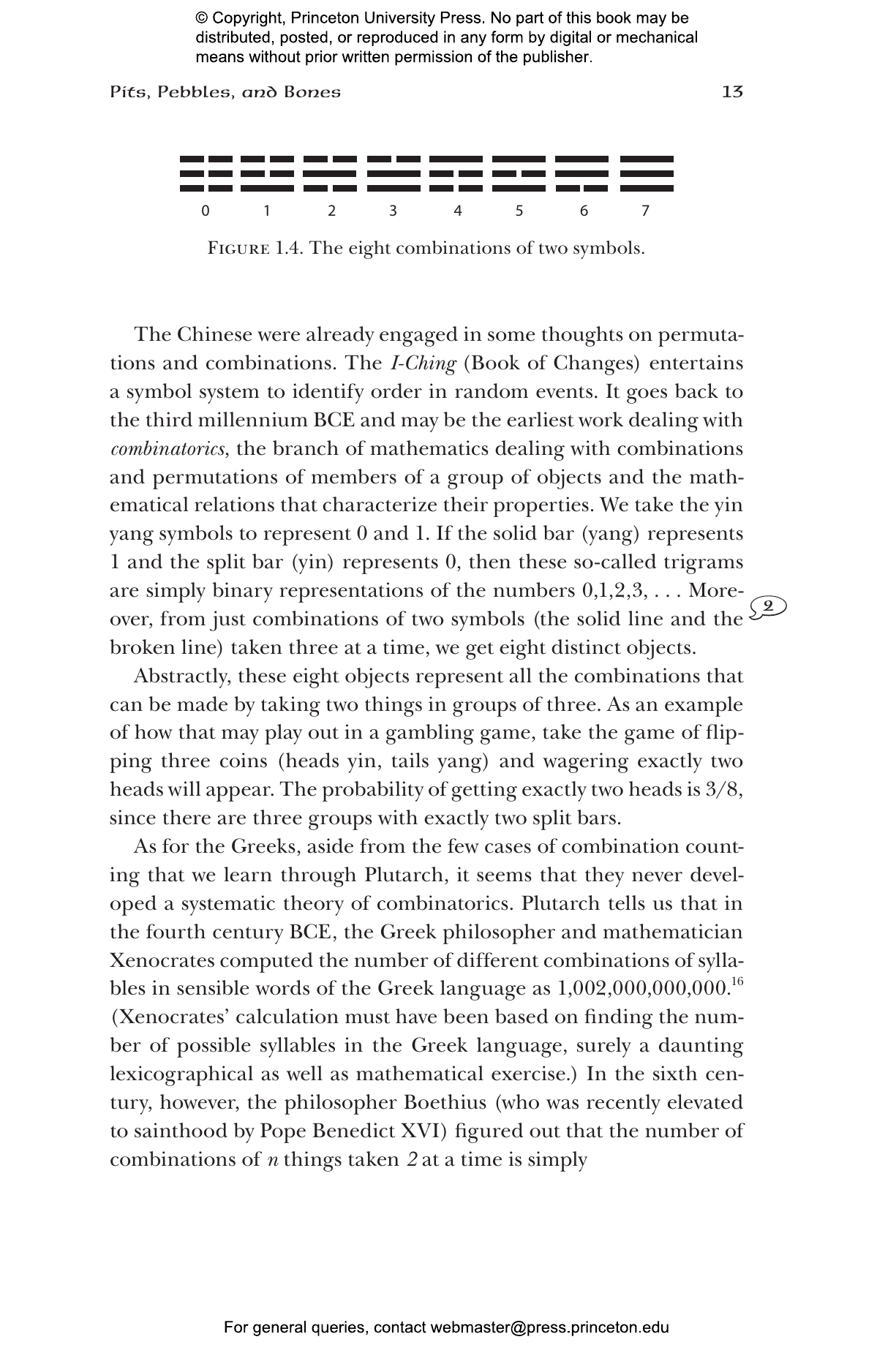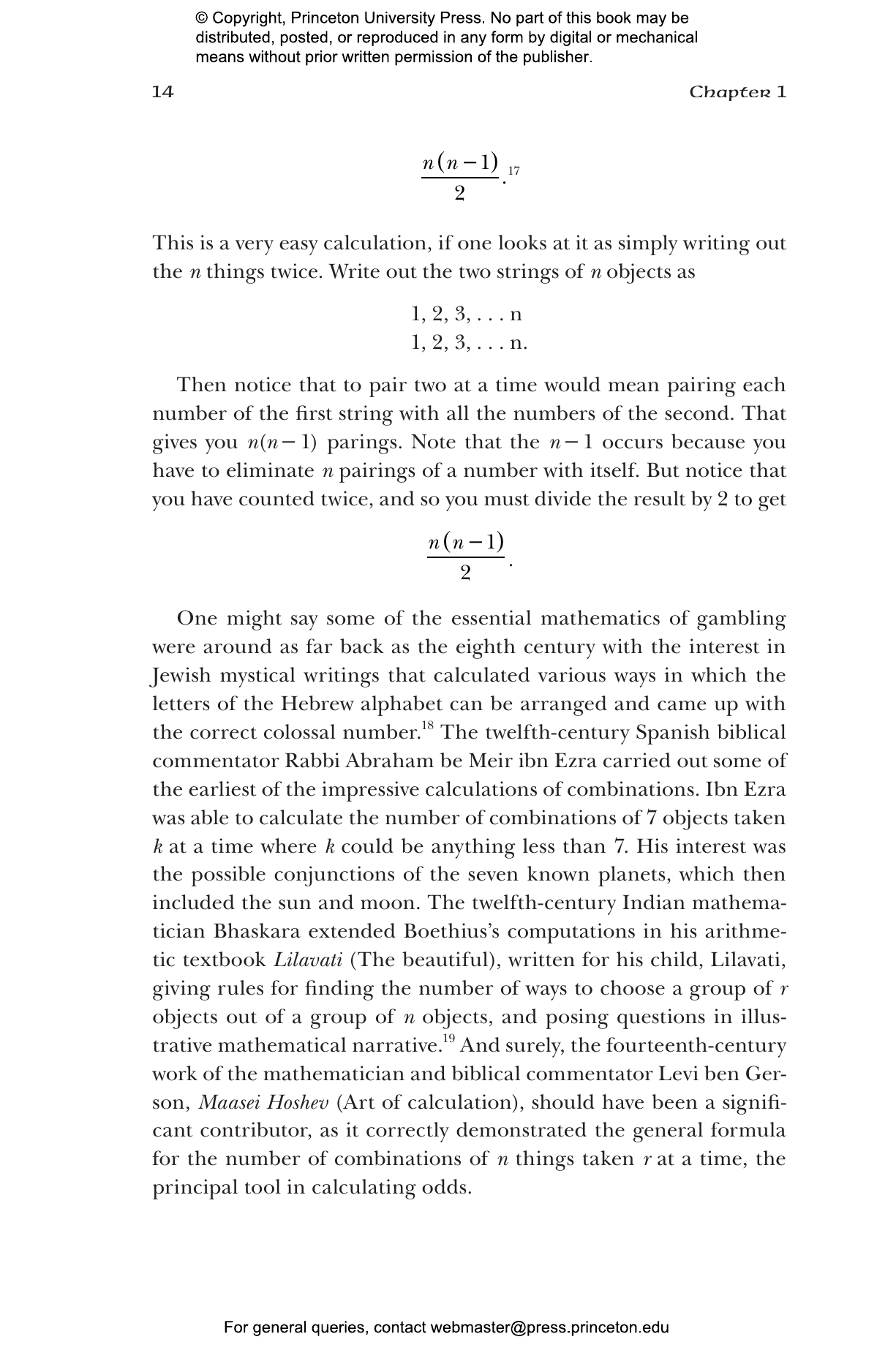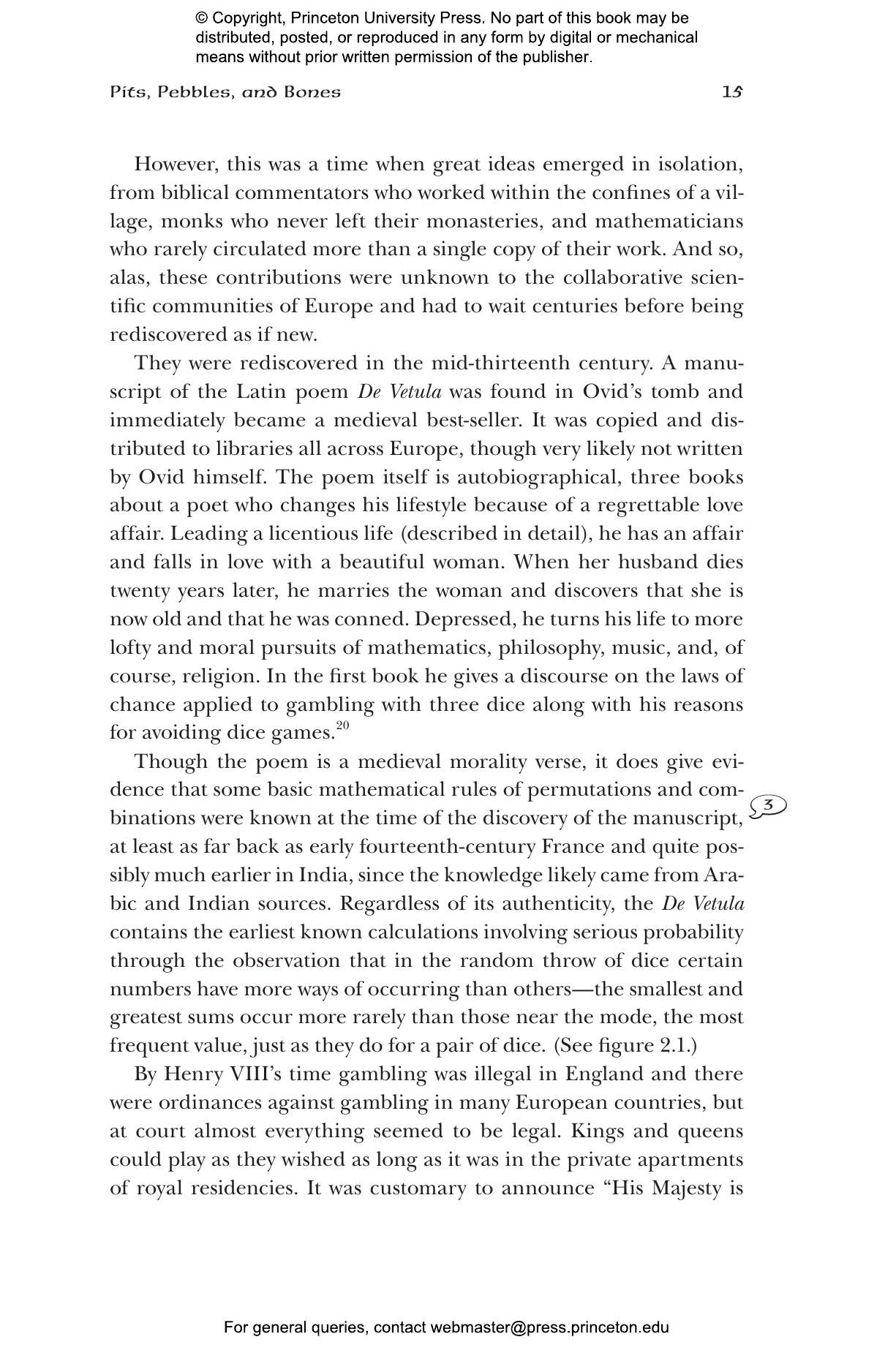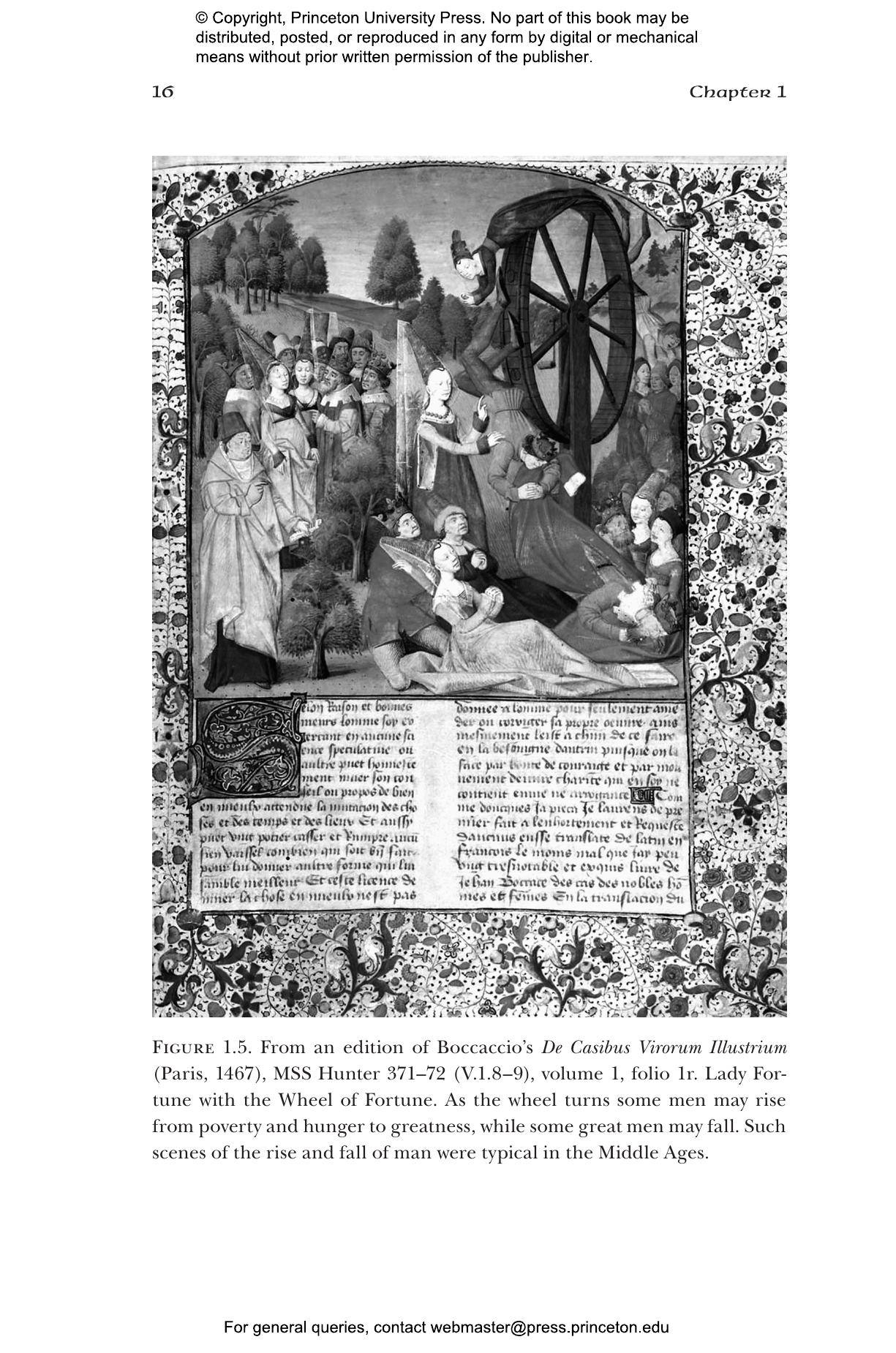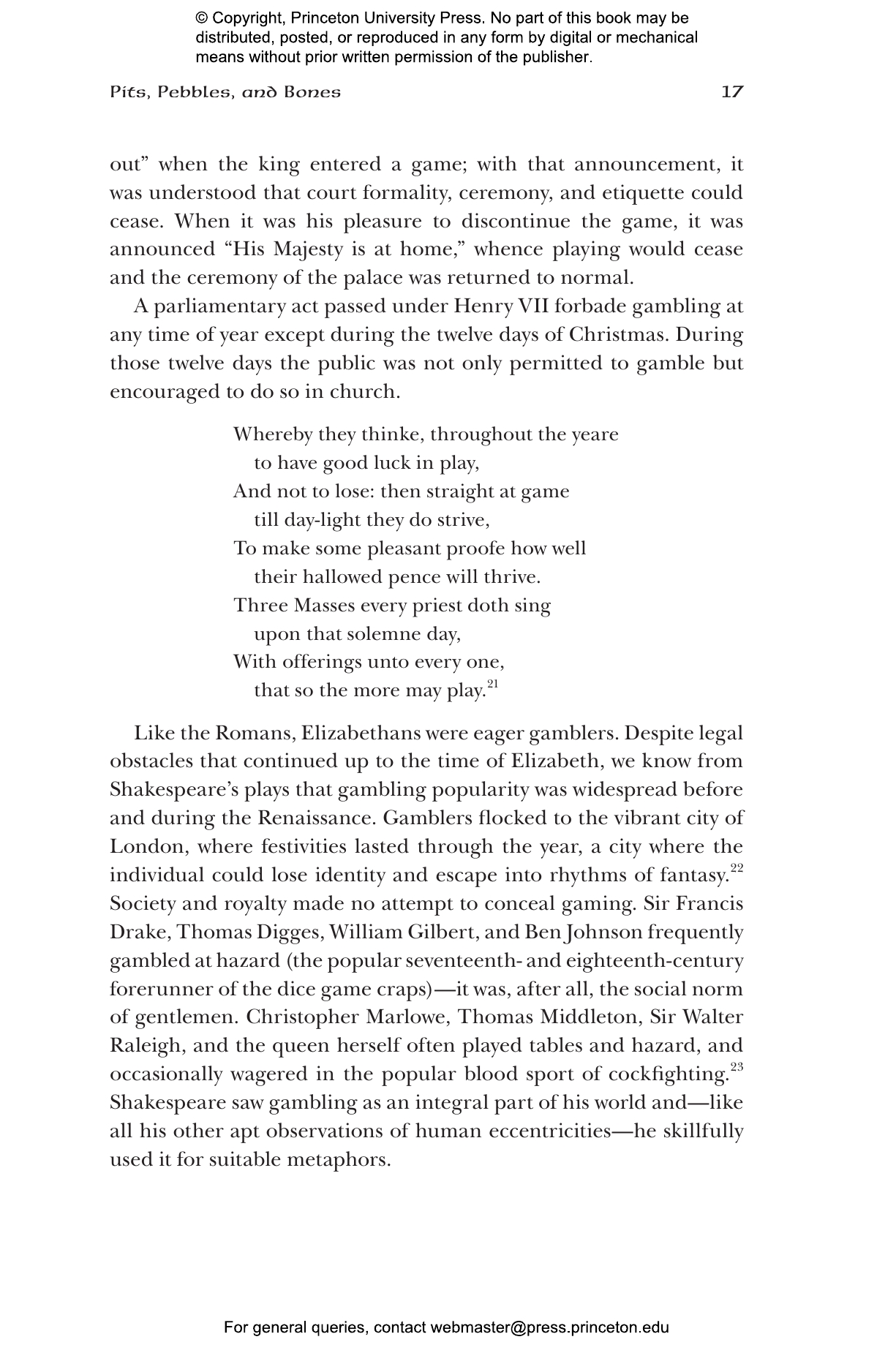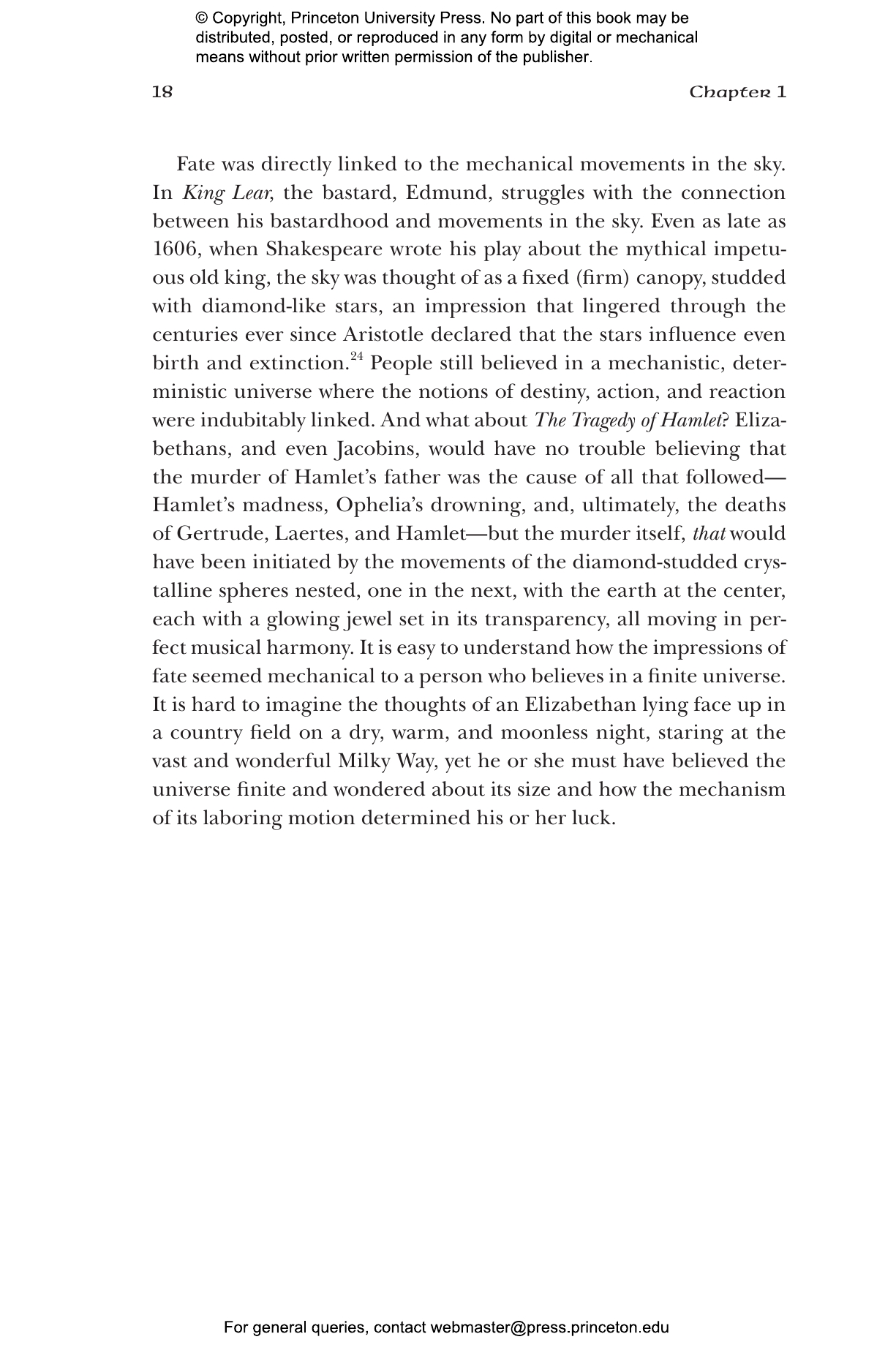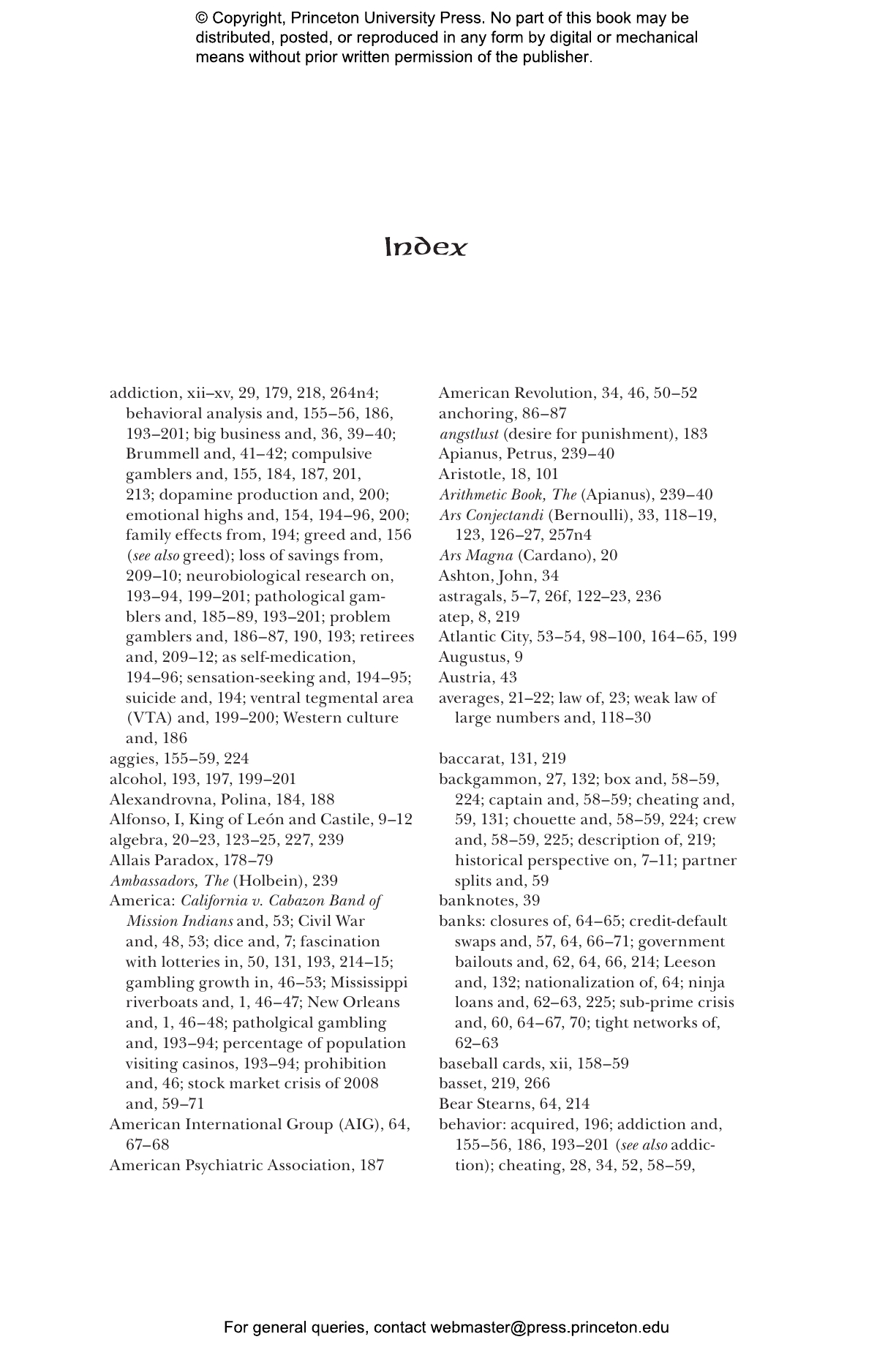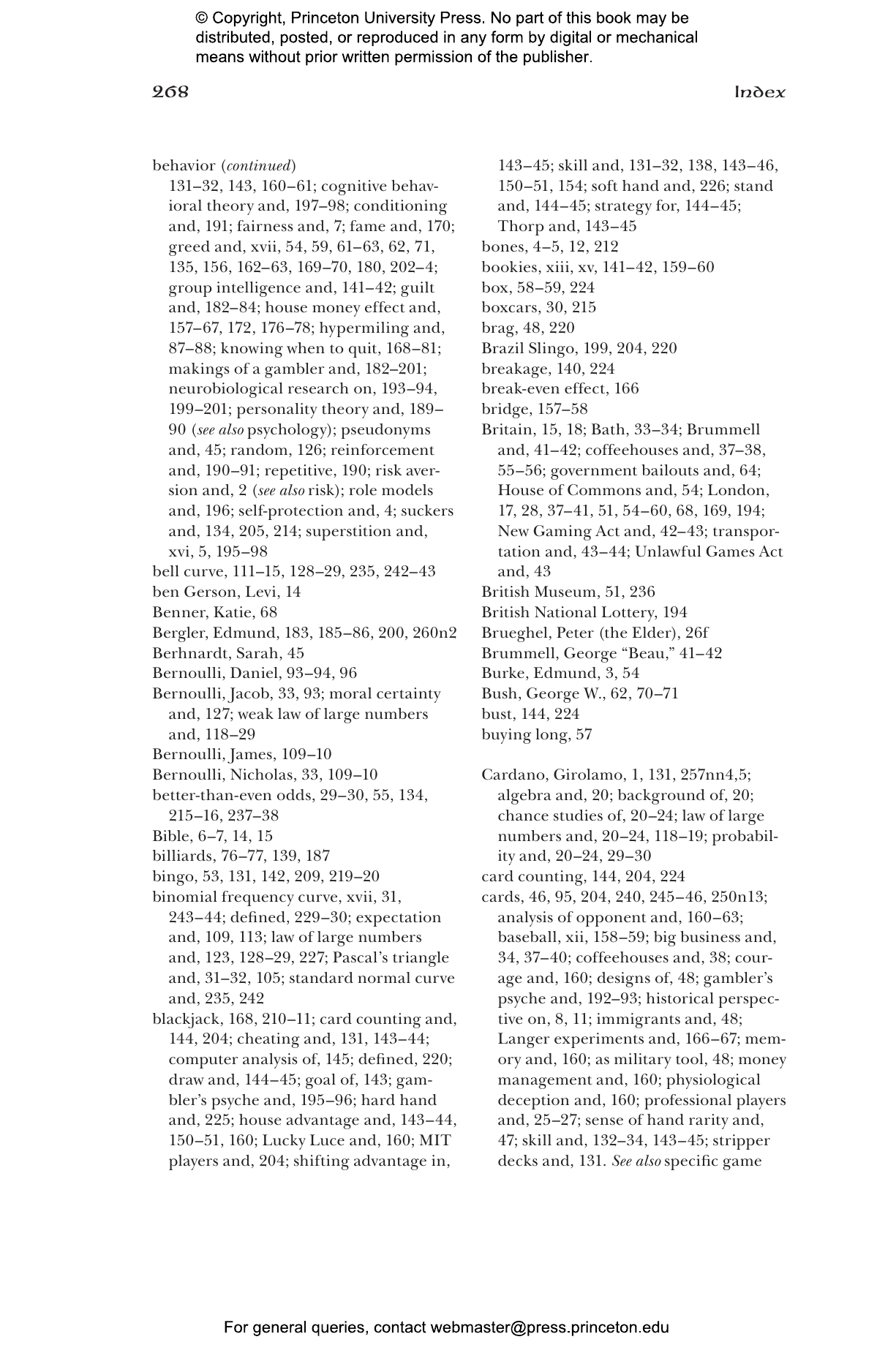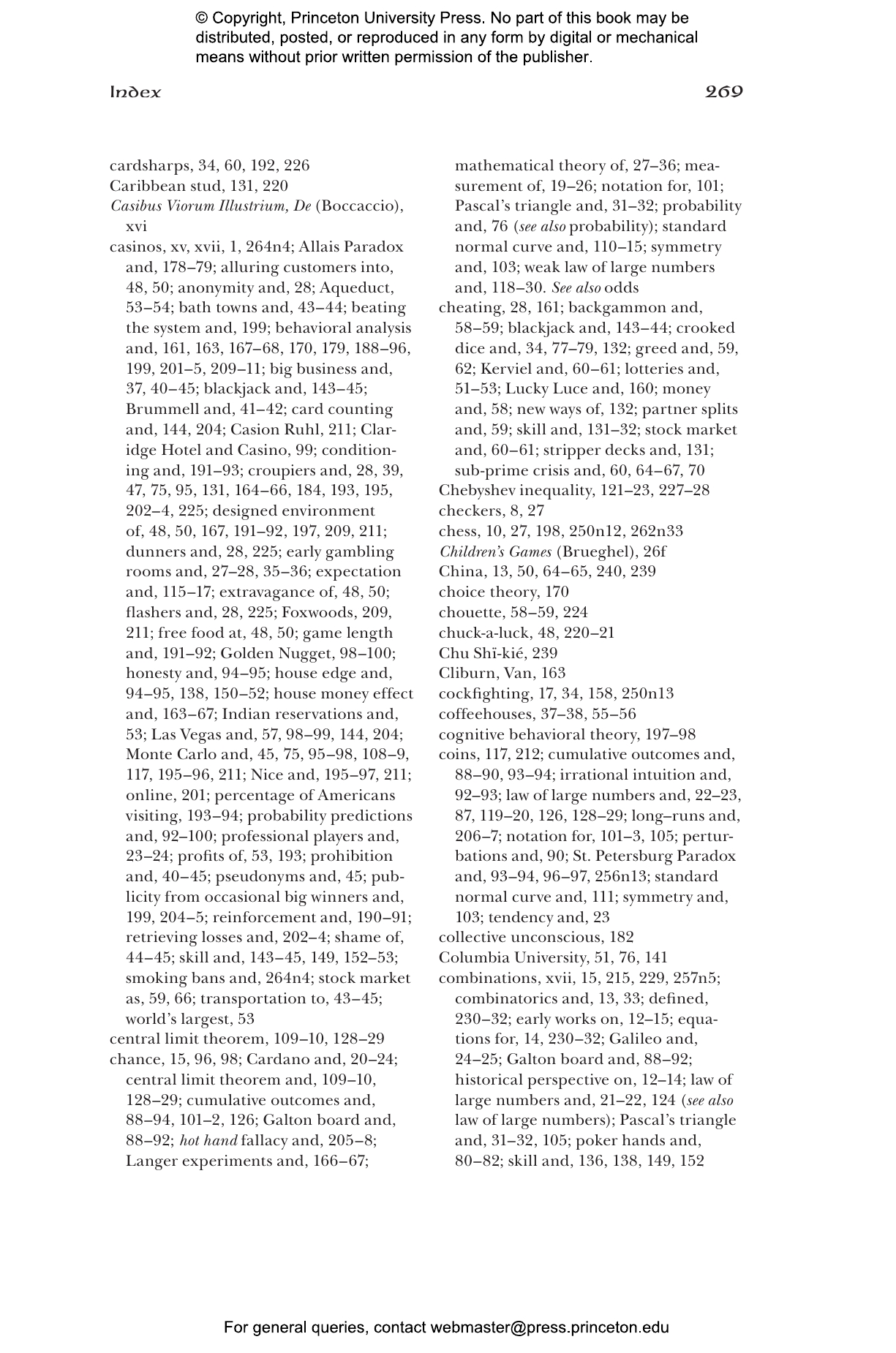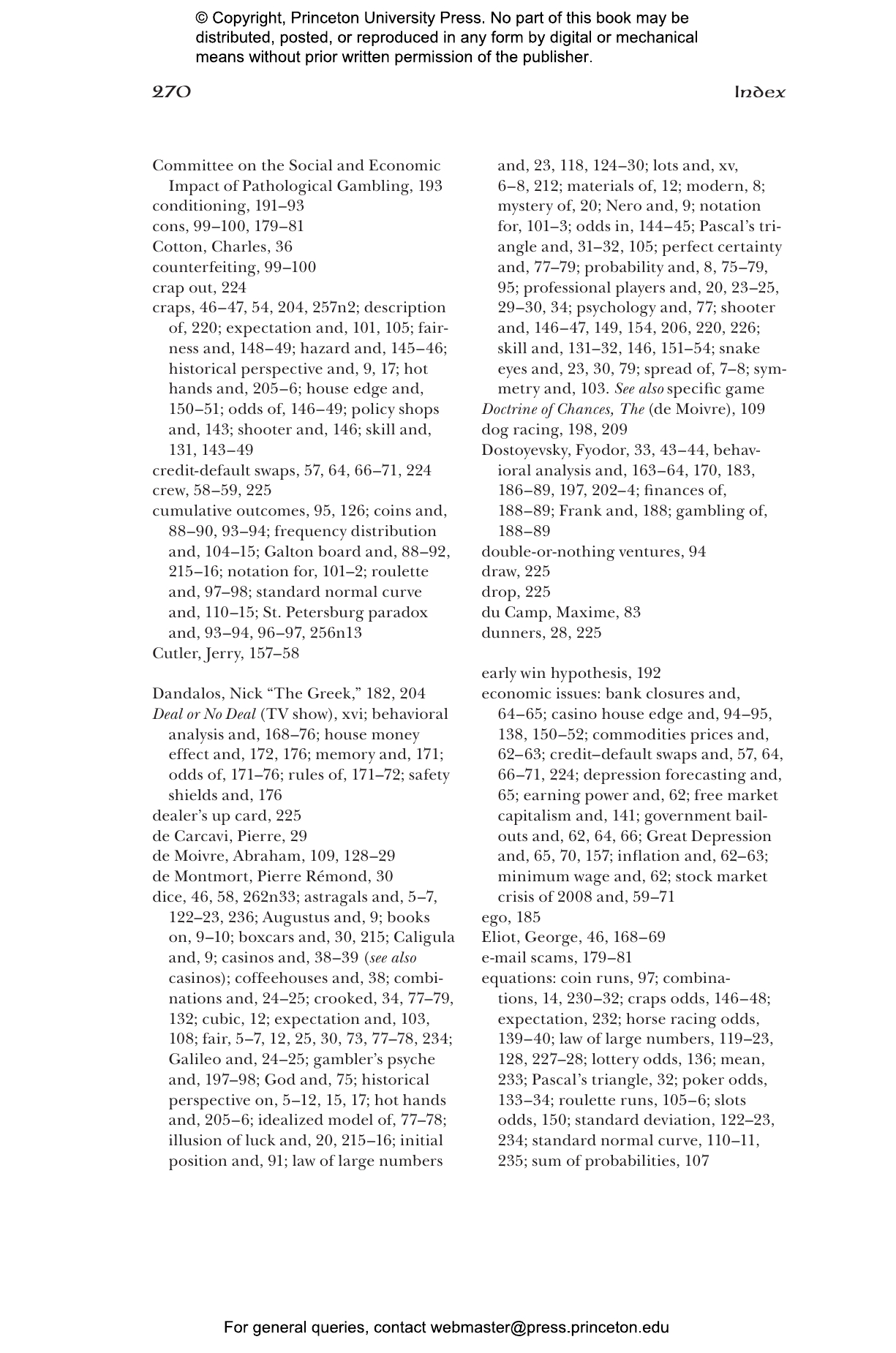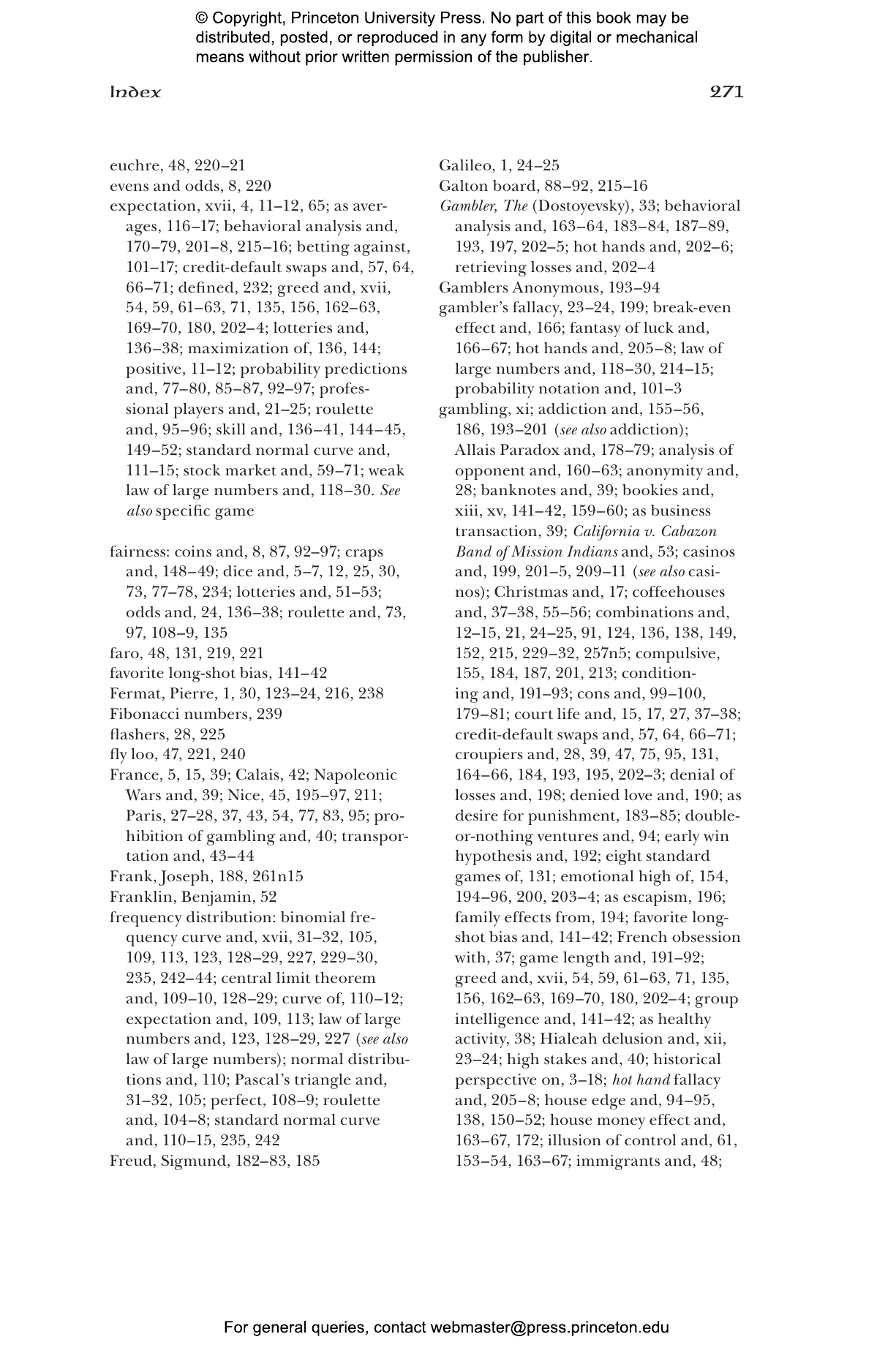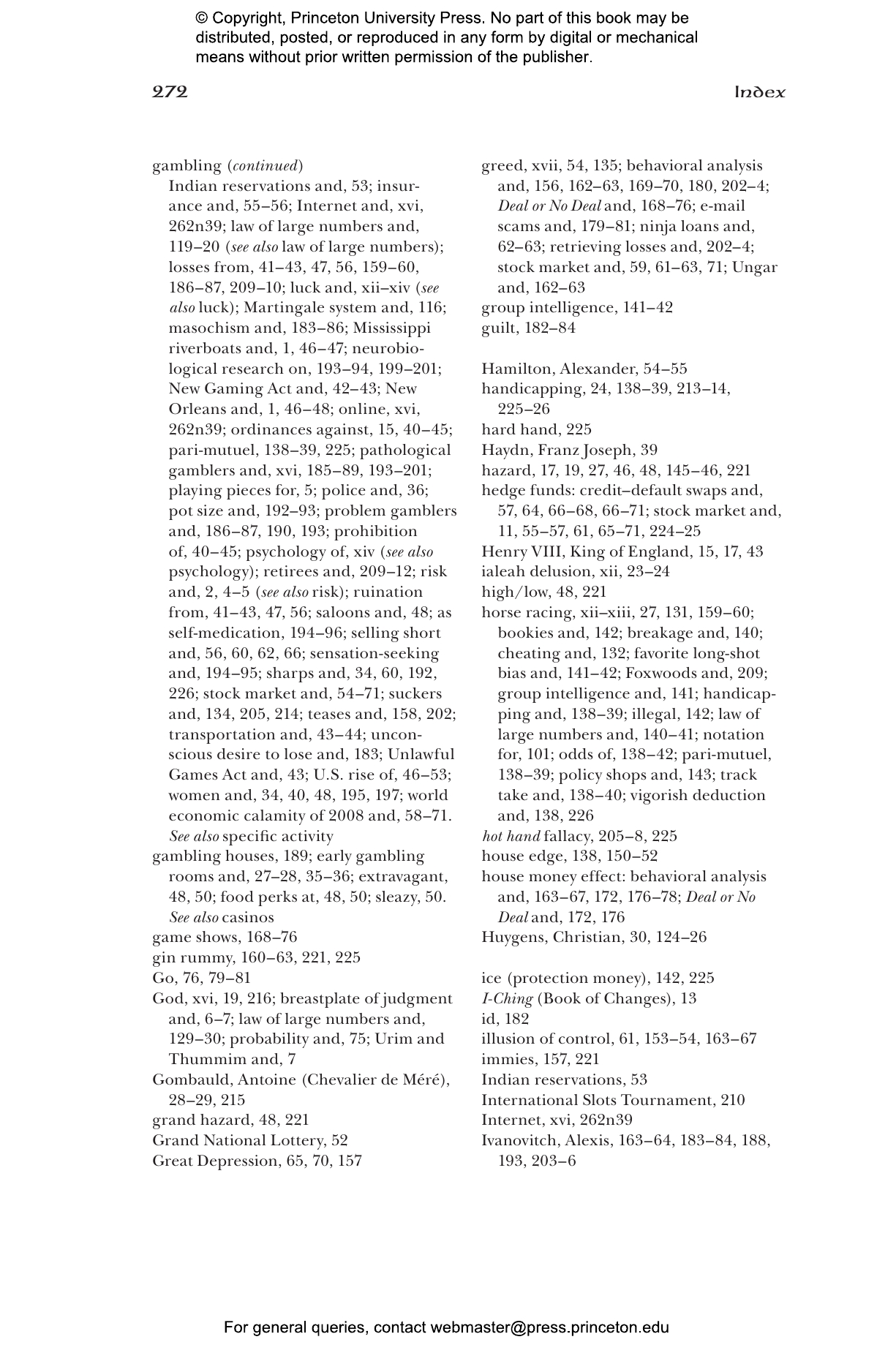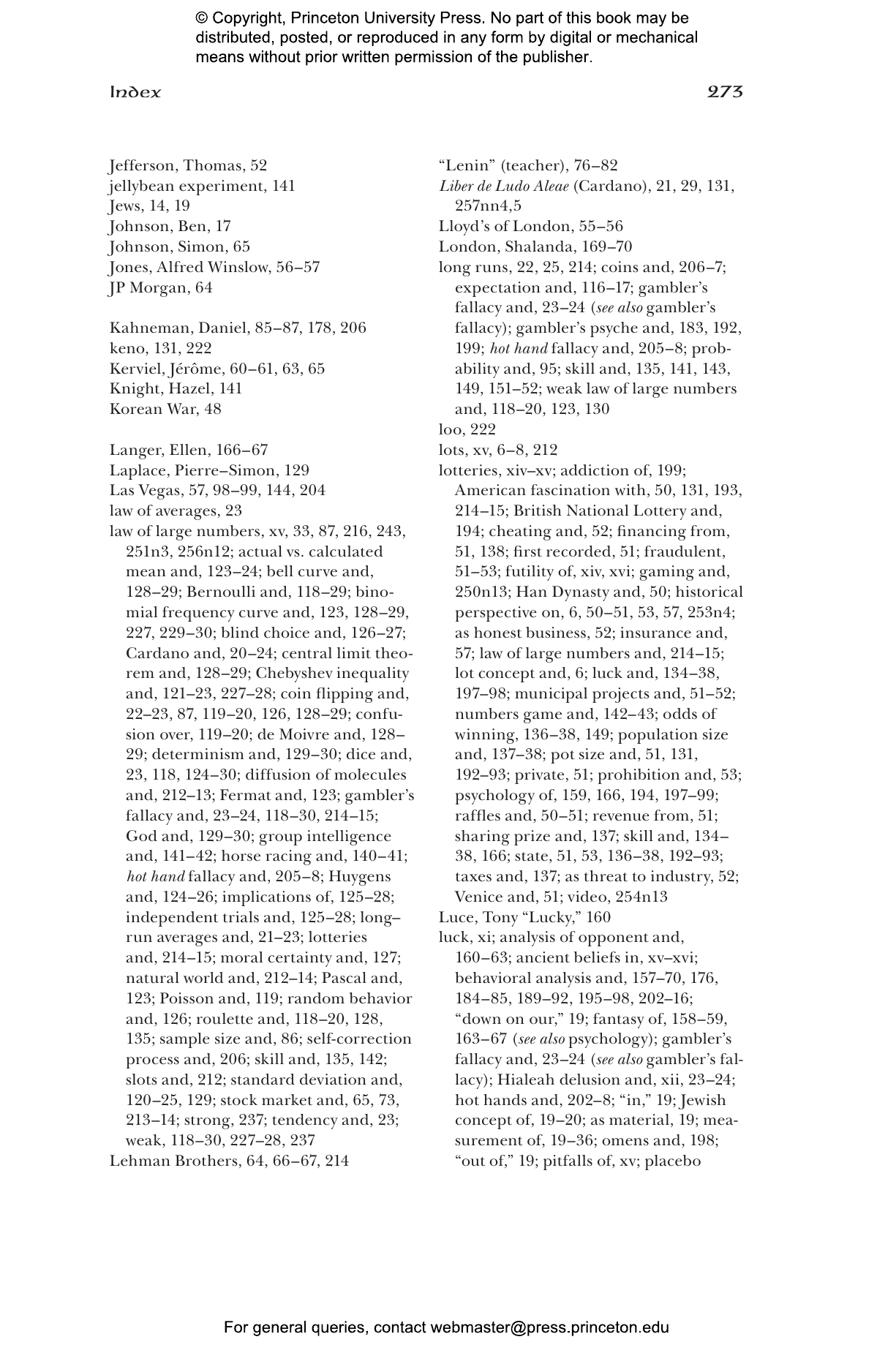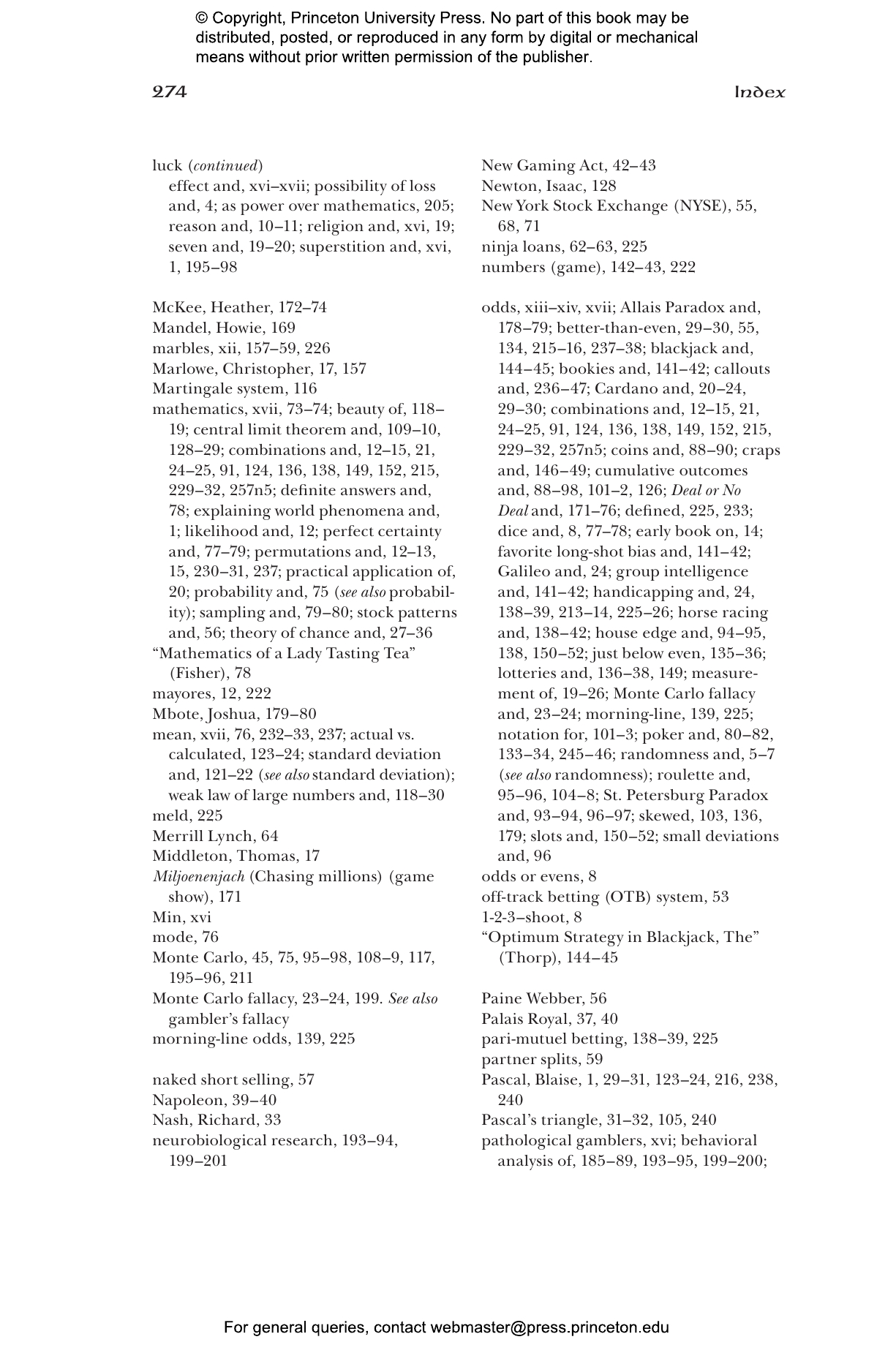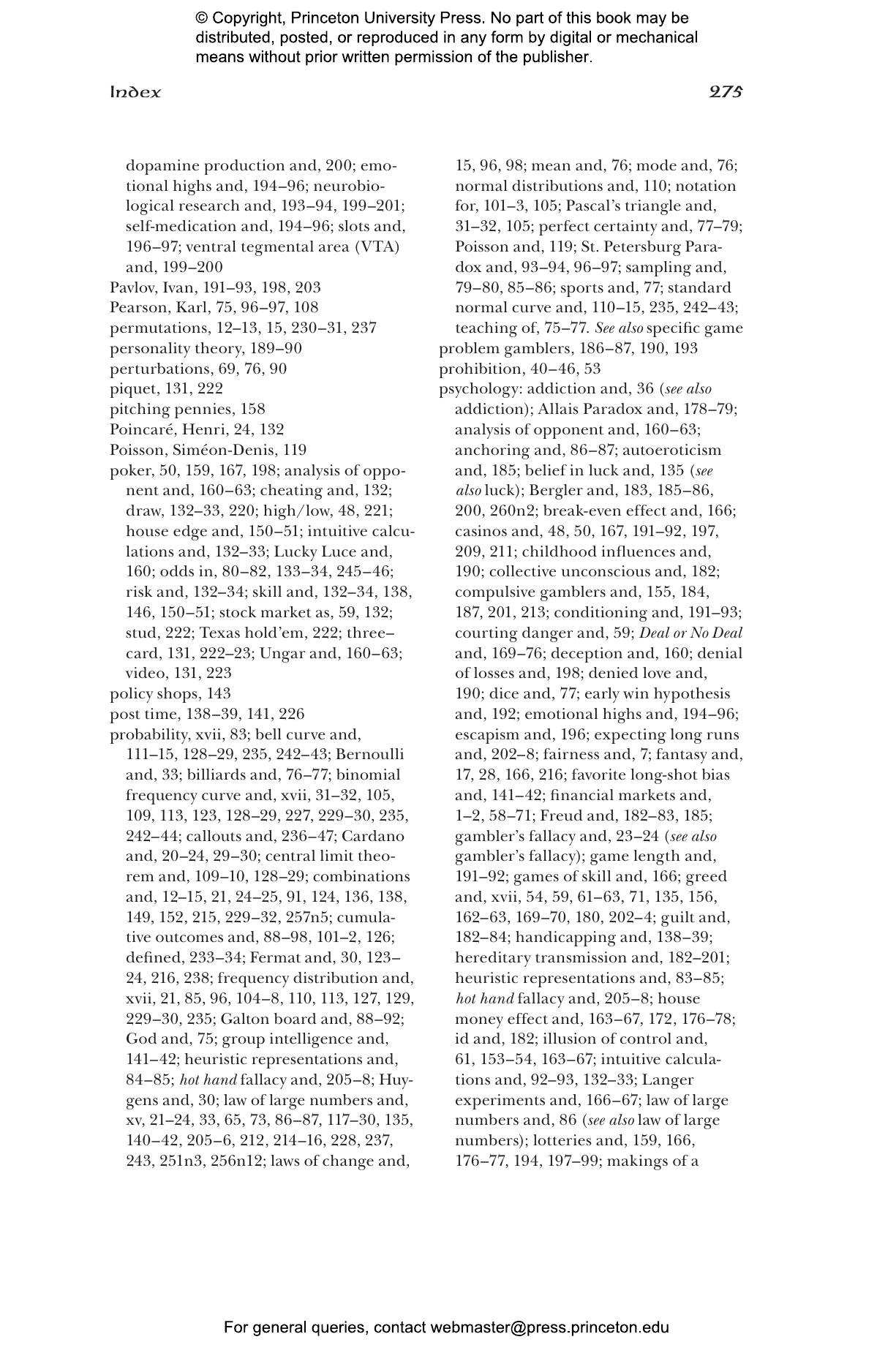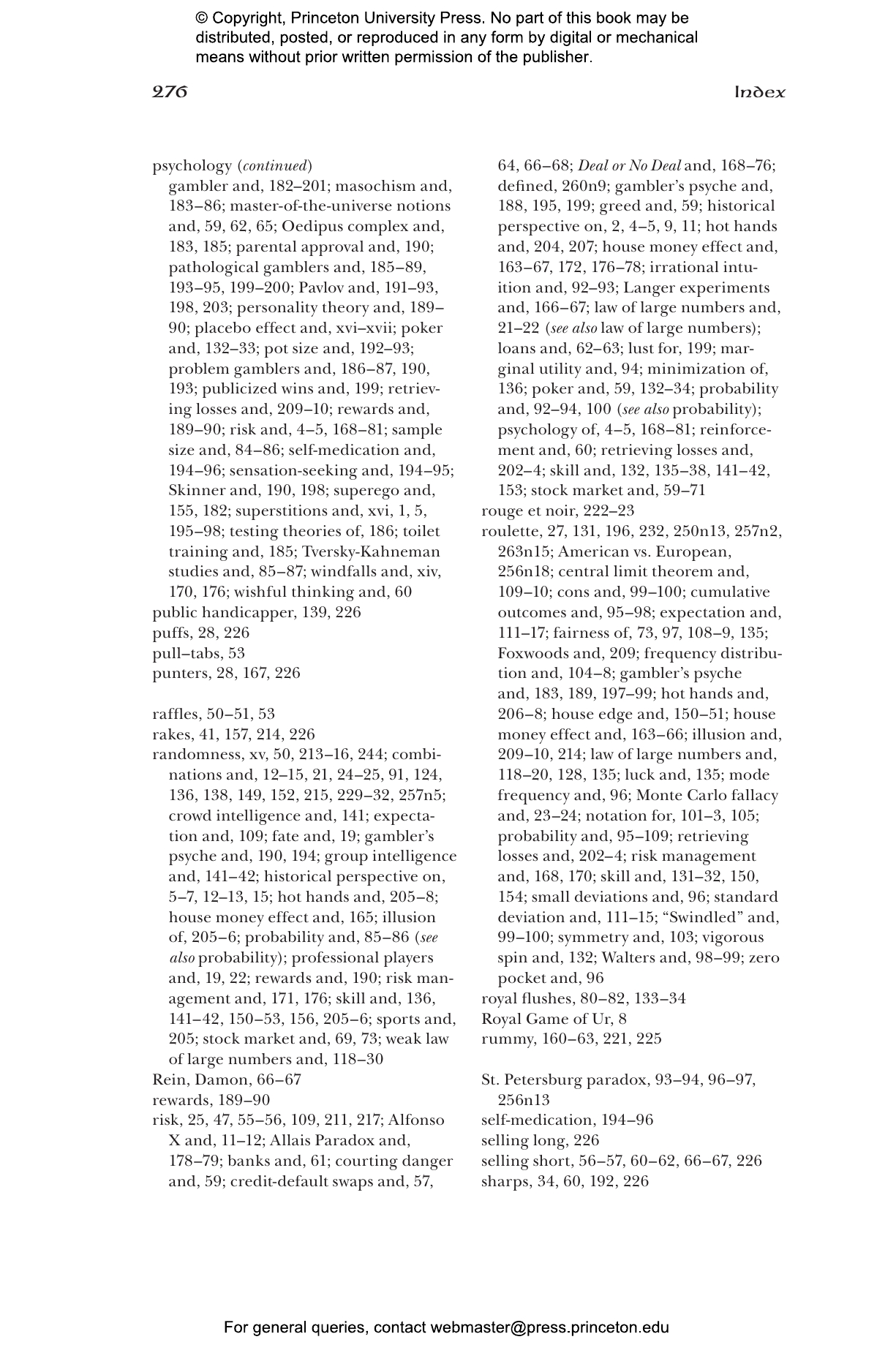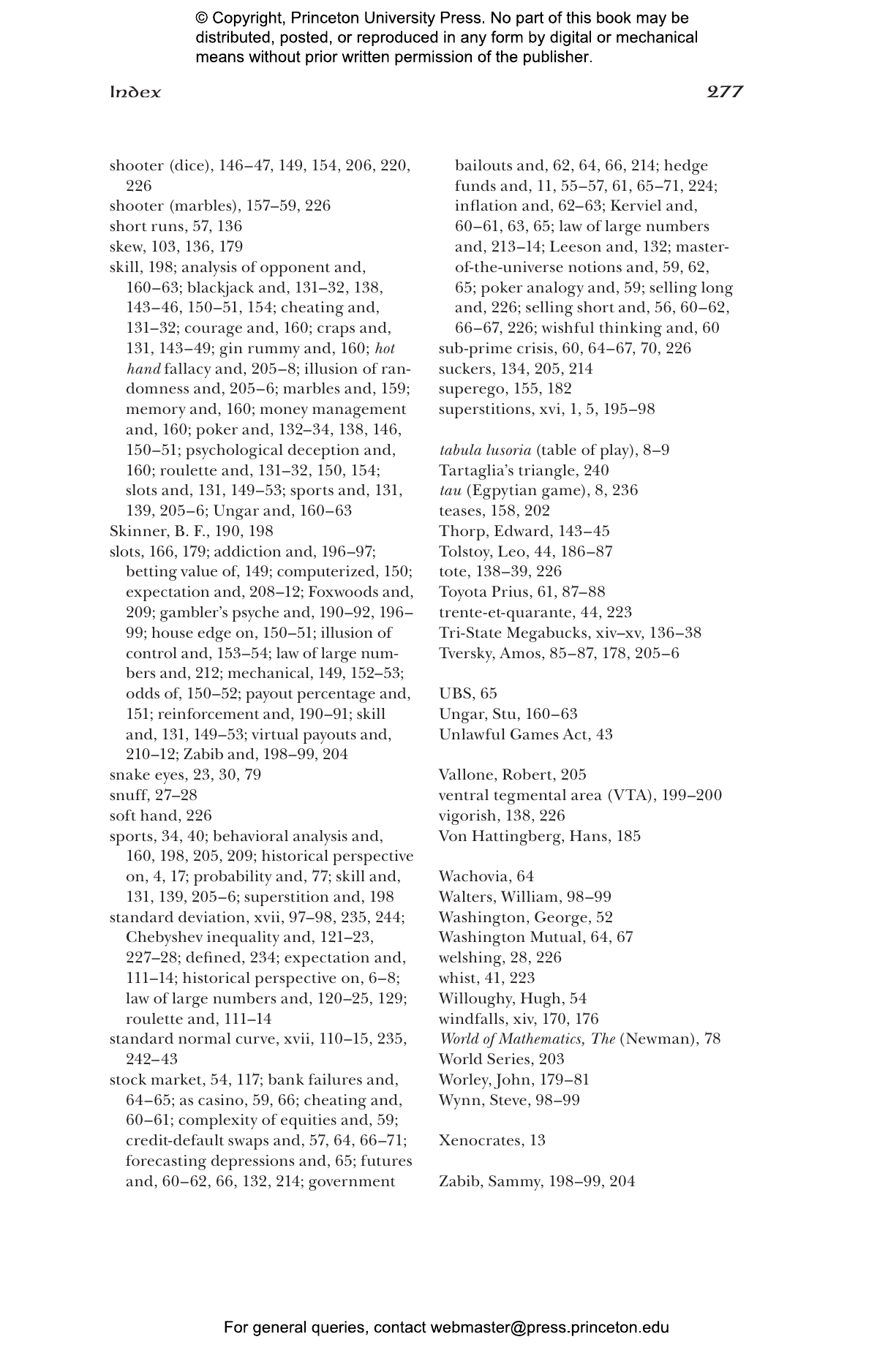Why do so many gamblers risk it all when they know the odds of winning are against them? Why do they believe dice are “hot” in a winning streak? Why do we expect heads on a coin toss after several flips have turned up tails? What’s Luck Got to Do with It? takes a lively and eye-opening look at the mathematics, history, and psychology of gambling to reveal the most widely held misconceptions about luck. It exposes the hazards of feeling lucky, and uses the mathematics of predictable outcomes to show when our chances of winning are actually good.
Mathematician Joseph Mazur traces the history of gambling from the earliest known archaeological evidence of dice playing among Neolithic peoples to the first systematic mathematical studies of games of chance during the Renaissance, from government-administered lotteries to the glittering seductions of grand casinos, and on to the global economic crisis brought on by financiers’ trillion-dollar bets. Using plenty of engaging anecdotes, Mazur explains the mathematics behind gambling—including the laws of probability, statistics, betting against expectations, and the law of large numbers—and describes the psychological and emotional factors that entice people to put their faith in winning that ever-elusive jackpot despite its mathematical improbability.
As entertaining as it is informative, What’s Luck Got to Do with It? demonstrates the pervasive nature of our belief in luck and the deceptive psychology of winning and losing.
"From the dice-playing of Neolithic peoples to modern lotteries and casino capitalism, he tracks the history of placing bets. He explains both the mathematics of chance and the psychological and emotional factors that entice some people to risk it all to win that improbable jackpot."—Joanne Baker, Nature
"In What's Luck Got to Do With It?, mathematician Joseph Mazur explores these misconceptions, taking the reader on an entertaining and accessible tour of the history of gambling, the way mathematicians quantify luck and the psychology that keeps gamblers returning to the table. A book worth taking a chance on."—New Scientist
"Doubtless aimed at the interested gambler, the frequent cultural references, anecdotes and intervention of psychology nevertheless make the book appealing reading."—Times Higher Education
"Both an analysis of the idea of luck, the gambling impulse, and a history of it, stretching back to Neolithic times, the Renaissance (Francis Drake and Ben Johnson often played hazard—an early form of dice) up to the age of one-arm bandits."—Steven Carroll, The Age
"Because Mazur's not judgmental about luck and gambling, but is analytical, the book is a winner. It's not just a mathematician telling us that we'll never hit a million-dollar jackpot—it's a mathematician looking at why we continue to hope to hit that jackpot. This book should be required reading for anyone in the casino business, and anyone who spends more than a fraction of their disposable income on gambling should find it informative, if nothing else. It's a reasoned, but also passionate, search for the meaning of luck that may change the way you look at a pair of dice—or your mortgage."—dieiscast.com
"What's Luck Got to Do with It? is an entertaining and informative history of gambling beginning with the Ice Age. . . . Anyone who has an interest in probability will enjoy Mazur's ideas and insights."—Mathematics Teacher
"Readers will find many an unexpected treat in Mazur's exploration of luck, or, as Mazur might say, the likelihood of long runs of desired outcomes within the purview of the law of large numbers."—Andrew James Simpson, Mathematical Reviews Clippings
"Mazur's book is appealing to virtually anyone with an interest in the human psyche. It should certainly be given out to anyone arriving for work on their first day on Wall Street. Perhaps it would help to avoid a few more disasters."—Sam Marsden, Jackpot Gaming Limited
"Mazur's book treats luck in a fresh light. The philosophy and emotional aspects (along with a little mathematics) are all there. The reader who delves in will be lucky indeed."—Persi Diaconis, Stanford University
"Blending math with memoir, probability with psychology, and heuristics with history, Mazur has written an essential book for anyone who wants to get a better idea of why we consistently bet against the odds. From the betting window to Wall Street, he offers insights into both the mechanics of chance and the enduring appeal that luck holds for those who wager every day, whether they call it gambling, speculation, or just hoping for the best. Engaging and illuminating, this is a guaranteed winner."—David G. Schwartz, director of the Center for Gaming Research at the University of Nevada, Las Vegas, and author of Roll the Bones: The History of Gambling
"This is a fascinating book. It's a fresh, funny, philosophical look at gambling by a mathematician who knows what he's talking about, and who has quite obviously thought about gambling for a long time. Mazur isn't afraid to make provocative, opinionated statements. I have not seen a gambling book like this before. I think it will attract a lot of readers."—Paul J. Nahin, author of Digital Dice
"This book is significant in that it offers a lively and diverse collection of gambling-related ideas. Mazur's robust blend of anecdotes, history, psychology, and mathematics differs from other attempts to discuss these ideas. He offers plenty of insights into the questions and issues he raises."—Edward Packel, author of The Mathematics of Games and Gambling
